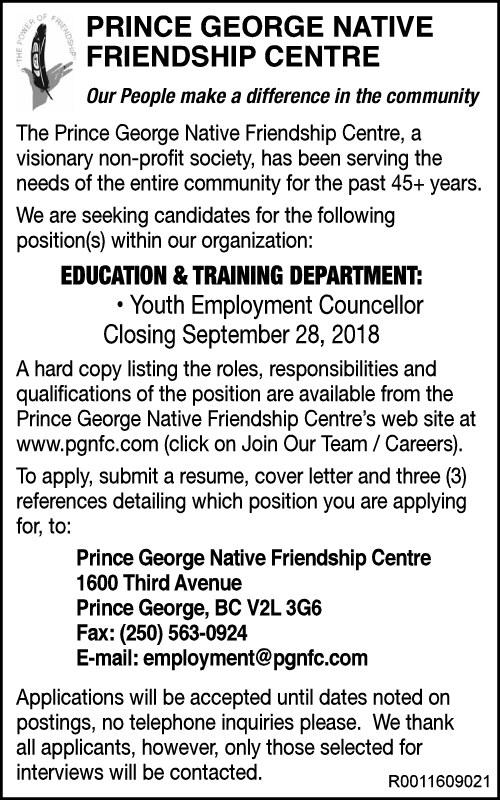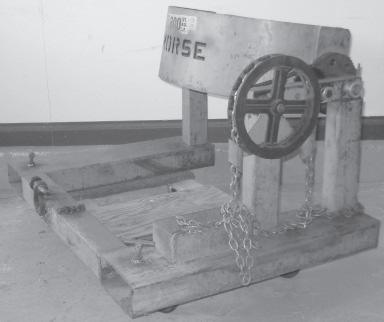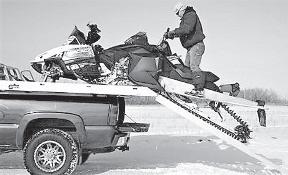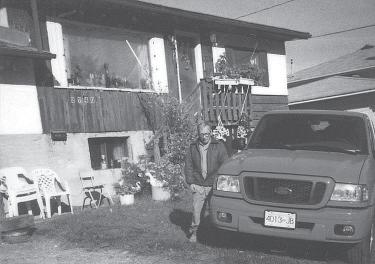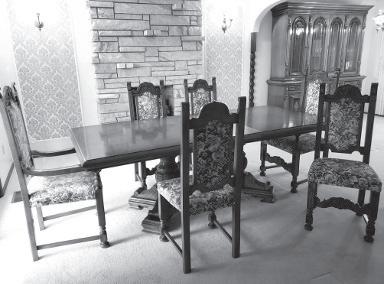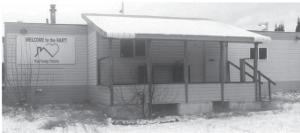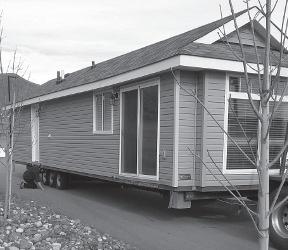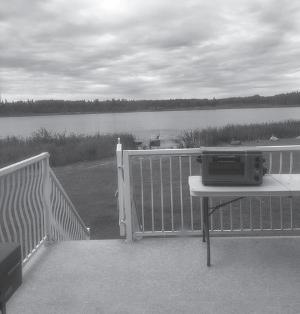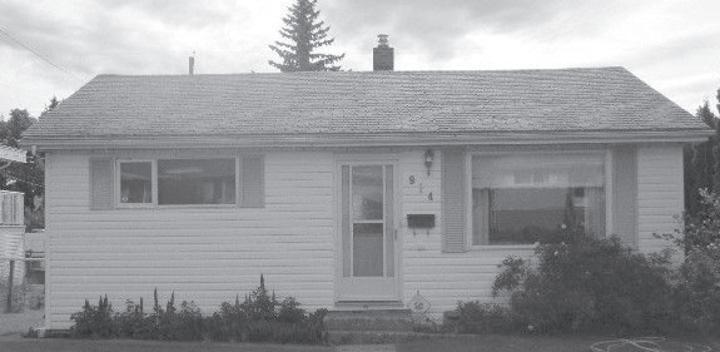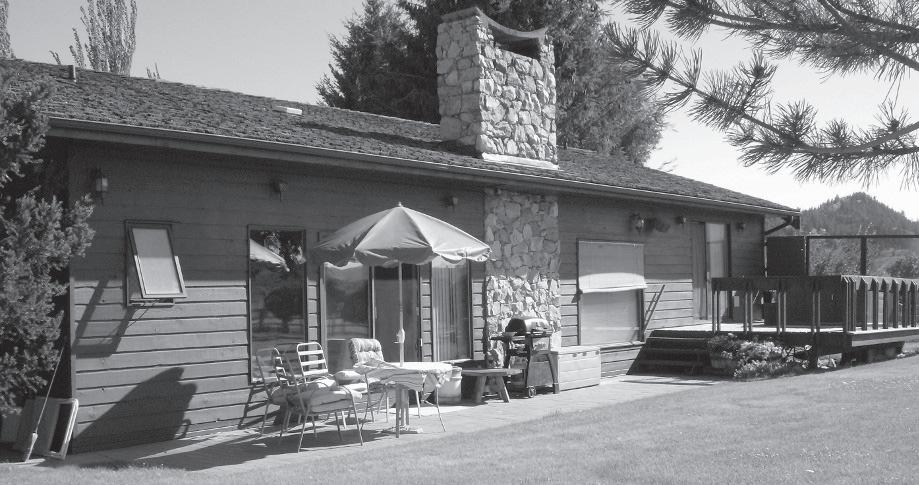




Mark NIELSEN Citizen staff mnielsen@pgcitizen.ca
The heavy lifting has started as city crews work to put an end to the sinkhole saga. With the help of a large crane, the first of the components making up a concrete chamber were being put into place on Thursday at the bottom of the hole that has occupied the south end of Winnipeg Street for several months.
The chamber is made up of four bottom pieces and two roof pieces that were constructed and cured onsite over the past two weeks and weigh in at 23,000 kilograms in total. It will take the place of eight metres of
deteriorated metal pipe and hopefully put an end to a series of sinkholes that continually emerged over the past few years.
The turbulence from the water rushing down off the adjacent hill whenever there was a storm appears to be the reason for the failure of the pipe, which was supposed to last 80 to 100 years but was only about half that age when the trouble began.
“Concrete is what large diameter or large storm drains should be made of, so we’re replacing an old metal one with concrete,”
Josh Kelly, the city’s supervisor of energy, environment and sustainability, told local media at the site. The last of the components should be in
place by next week and the stretch should be reopened to traffic by mid-to-late October. Restoring the site will be a bit more complex than simply filling the hole back in.
“There’s a storm main that comes down Carney Street that needs to be connected into the chamber,” Kelly said. “As we come up a little bit higher, there’s electrical for the streetlights, and then as we come up higher there is curb and gutter, asphalt, pavement.”
It was also more than a matter of just digging down to get to the source of the problem. Dams and three high-capacity pumps had to be installed to drain water from the site.
Members of a tiny First Nation in northwest British Columbia remain scattered across the province in hotels and relatives’ homes after fleeing destructive wildfires this summer.
It will take months to clean up the damage in Tahltan First Nation territory in Telegraph Creek, which was devastated by four wildfires that merged into one 1,180-square-kilometre blaze in August, said Chief Rick McLean.
Crews must clear debris and burnedout houses, ensure the water is drinkable, restore police and health services and even restock store shelves, he said.
Rebuilding 21 destroyed homes can’t even begin until spring, when the ground isn’t frozen.
“It’s mixed emotions,” McLean said.
“Some people are happy they got out and have their safety and lives. Other people are taking it a little bit harder

after losing all their stuff, everything.”
The 2018 wildfire season was the worst in B.C. in terms of land burned, scorching more than 13,000 square kilometres. The flames hit First Nations especially hard and sparked complaints of poor funding and communication with Indigenous groups.
The federal government is responsible for funding emergency planning for First Nations on reserve lands, while the province funds regional districts. Indigenous groups say the result is a complicated, bureaucratic system that left them illprepared.
McLean said the Tahltan did not have adequate resources to battle wildfires.
Its fire department runs on $10,000 a year, he said, which is not nearly enough given that maintaining and fuelling a fire truck costs several thousand dollars on its own.
But he said he spoke in mid-August with Premier John Horgan, who raised
his concerns with Prime Minister Justin Trudeau. Since then McLean has had further talks with the province and Indigenous Services Canada and believes they’ll help the nation rebuild.
“Between (government funds) and our insurance, if you put all the pieces together, we hope to come up with enough to rebuild those homes that were lost and rebuild the community,” he said.
Mobile homes will eventually be set up in the community for people whose houses were destroyed, said Kristina Michaud, who lives in Prince George but whose family is from Telegraph Creek.
“It’s been difficult,” she said. “There are still lots of people who are in need and who are still displaced from the fires.”
A benefit concert was recently held in Whitehorse and the First Nation is also accepting donations of money and furniture, said Michaud.
— see ‘EVEN HOMES, page 3
“We’ve been fighting groundwater full time,” Kelly said. “They finally got a handle on it late last week or early this week and it’s incredible to see how dry and clean it is down there compared to how it was a week and a half ago.”
Cost of the work is still to be determined and while other projects to replace the city’s aging infrastructure are in the job jar, Kelly is crossing his fingers that another “major emergency” that was the sinkhole will not rear its head.
“We’ve had some incredible work from our consultants and contractors and some amazing work from the city utility crews,” Kelly said.
Rob SHAW Vancouver Sun
B.C. motorists who might occasionally let a friend or family member drive their vehicle will need to pay a new $50 fee on their basic auto insurance next year or face the risk of large penalties if the borrower crashes.
The “unlisted driver protection” fee is a littleknown part of the overhaul at ICBC that government announced in August and will take effect in September 2019.
The changes are touted as a way to pull the Crown insurance agency out of its financial crisis. But critics say the driver protection plan is one example of several rate hikes masquerading as hidden fees that most drivers will feel pressured to pay out of caution or confusion.
“If your vehicle is involved in a crash caused by an unlisted driver and you didn’t have the unlisted driver protection, there will be a financial consequence,” ICBC’s Adam Grossman said. — see ‘ALL OF THIS, page 3


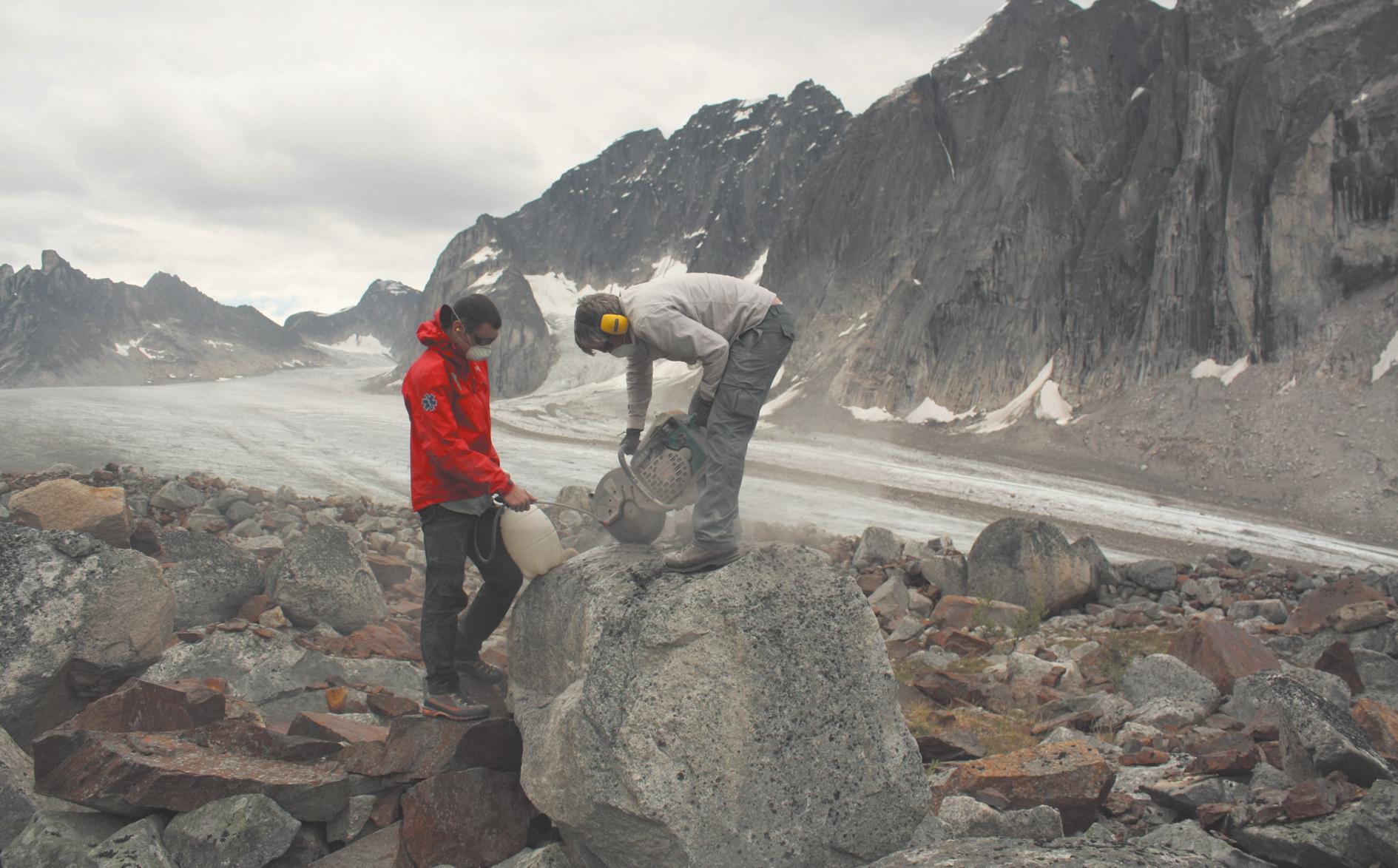
Glacier experts from UNBC and The University of Manchester have discovered that an ice sheet at the western margin of the Cordilleran ice sheet – which once covered western North America, including all of present-day British Columbia – retreated earlier than previously thought.
The early melting of the western ice margin exposed numerous islands that could have been used by early people migrating southwards. These findings, entitled Retreat of the western Cordilleran Ice Sheet margin during the last deglaciation, were recently published in the journal, Geophysical Research Letters.
Christopher Darvill from the University of Manchester’s department of
geography and a former UNBC postdoctoral fellow is the lead author on the paper. Another of the paper’s co-authors is UNBC geography professor Brian Menounos, a Canada Research Chair in glacial change.
The research team also included scientists from Tulane University, the University of the Fraser Valley and Purdue University.
“The route for the peopling of the Americas continues to be hotly debated,” said Menounos.
“One hypothesis proposes that the First Americans originated from Asia and migrated south, down the British Columbia Coast sometime between 18,000 and 16 ,000 years ago.
“This would require large tracts of the coast to be free of glacier ice. Our data and those from recent research clearly
support an ice-free coast during that critical time window.”
In addition to British Columbia, the Cordilleran ice sheet also covered parts of Yukon, Washington State and Alaska. Darvill and co-authors used surface exposure dating, a technique that can be used to determine how long quartzbearing rock has been exposed to high energy particles from space.
This procedure allowed the researchers to precisely date when glaciers last left British Columbia’s central coast.
“Our work changes the model of when this ice sheet retreated in the past, improving our understanding of past climate change over western North America,” added Darvill.
“The new findings add an exciting piece to the puzzle surrounding the colonization of the continent.”
The driver of a sport utility vehicle was transported to hospital with serious injuries following a collision with a pickup
truck late Tuesday night at Highway 97 and Railway Road. The driver of the truck was also transported to hospital, treated for minor injuries, and released.
RCMP were called to the scene shortly after 11 p.m.
Anyone who may have witnessed the collision is asked to call Prince George RCMP at 250-561-3300.
Frank PEEBLES Citizen staff fpeebles@pgcitizen.ca
Ten students in the forestry sector each stood on a Prince George stage this week to receive a cash contribution towards their education.
The Council of Forest Industries (COFI) is one of Canada’s premier industry associations in the wood products sector.
At their annual Prince George dinner they announced this year’s 10 scholarship recipients.
Those students are:
• Garet Anderson, Prince George
• Alex Von Geyer, Prince George
• Brooklynn Pearson, Vanderhoof
• Daniel Burgel, Nelson
• Sonja Hadden, 100 Mile House
• Jaydegh Billingsley, Quesnel
• Katie Hall, Prince George
• Emma Peasgood, Chetwynd
• Brianne Ghuman, Smithers
• Sheldon VanSickle, Barriere
“The forest industry needs bright, young minds and our industry offers diverse career opportunities in manufacturing, environmental management, technology, trades and professional services,” said Susan Yurkovich, COFI president and CEO.
Yurkovich added, “National Forest Week is an opportunity to recognize the one in 17 British Columbian workers whose jobs are supported by this valuable and renewable resource in all regions of the province.
“This is an industry with a strong history and bright future. Forestry generates 140,000 total jobs in B.C. while leading the world in sustainable forestry practices. We are proud to support the next generation in continuing their education in forestry and advancing further research and innovation.”
National Forest Week is taking place across the country until Saturday.
COFI estimates are for the B.C. forest sector to hire more than 25,000 people in the coming decade in communities around the province. These 10 scholarships are an annual support that’s offered by the members of the council to boost the next generation of forest industry professionals.
Each of these students is enrolled in a postsecondary institution program pursuing studies in the trades, technical or professional career paths offered by the forests of B.C.
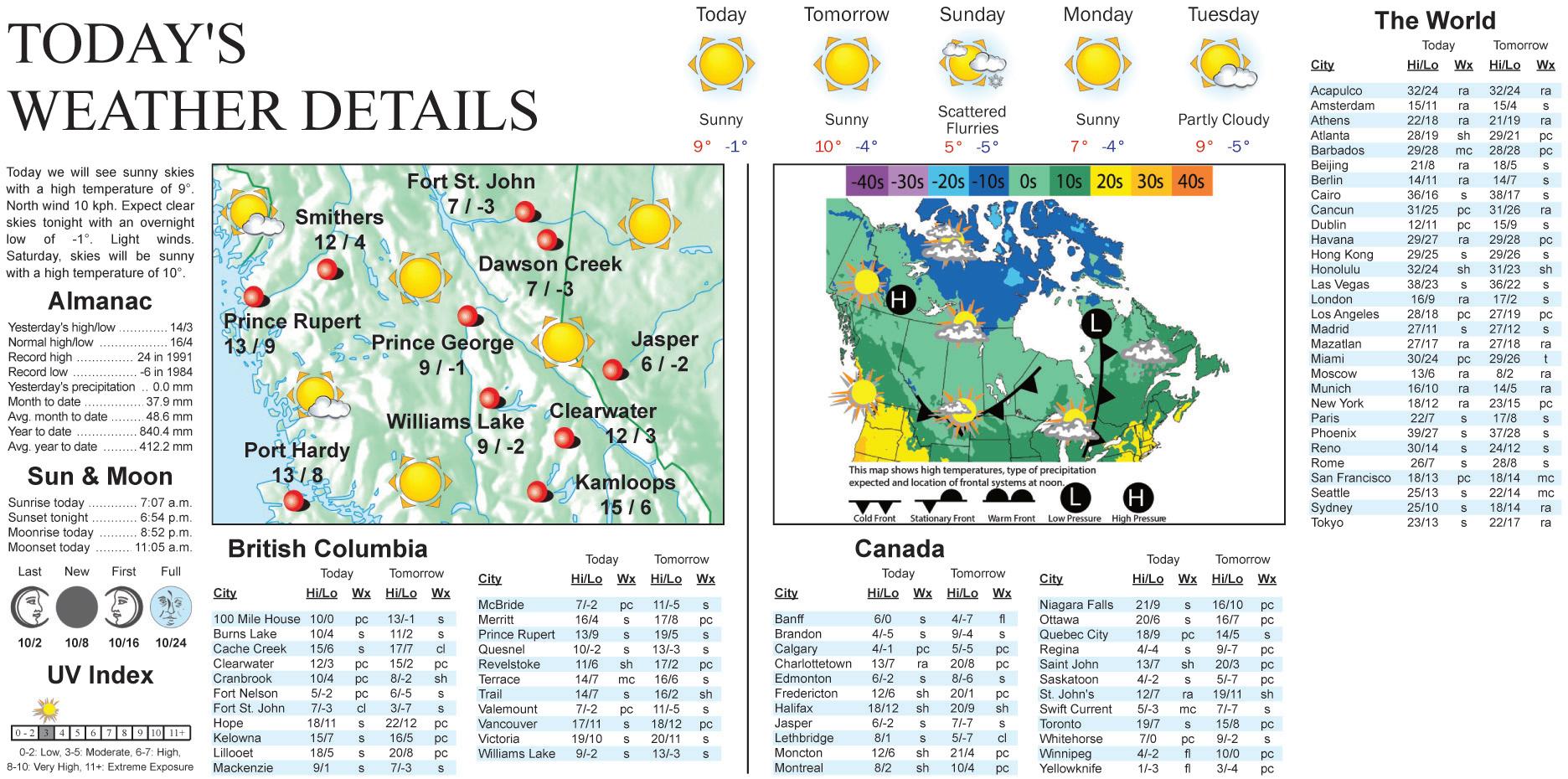

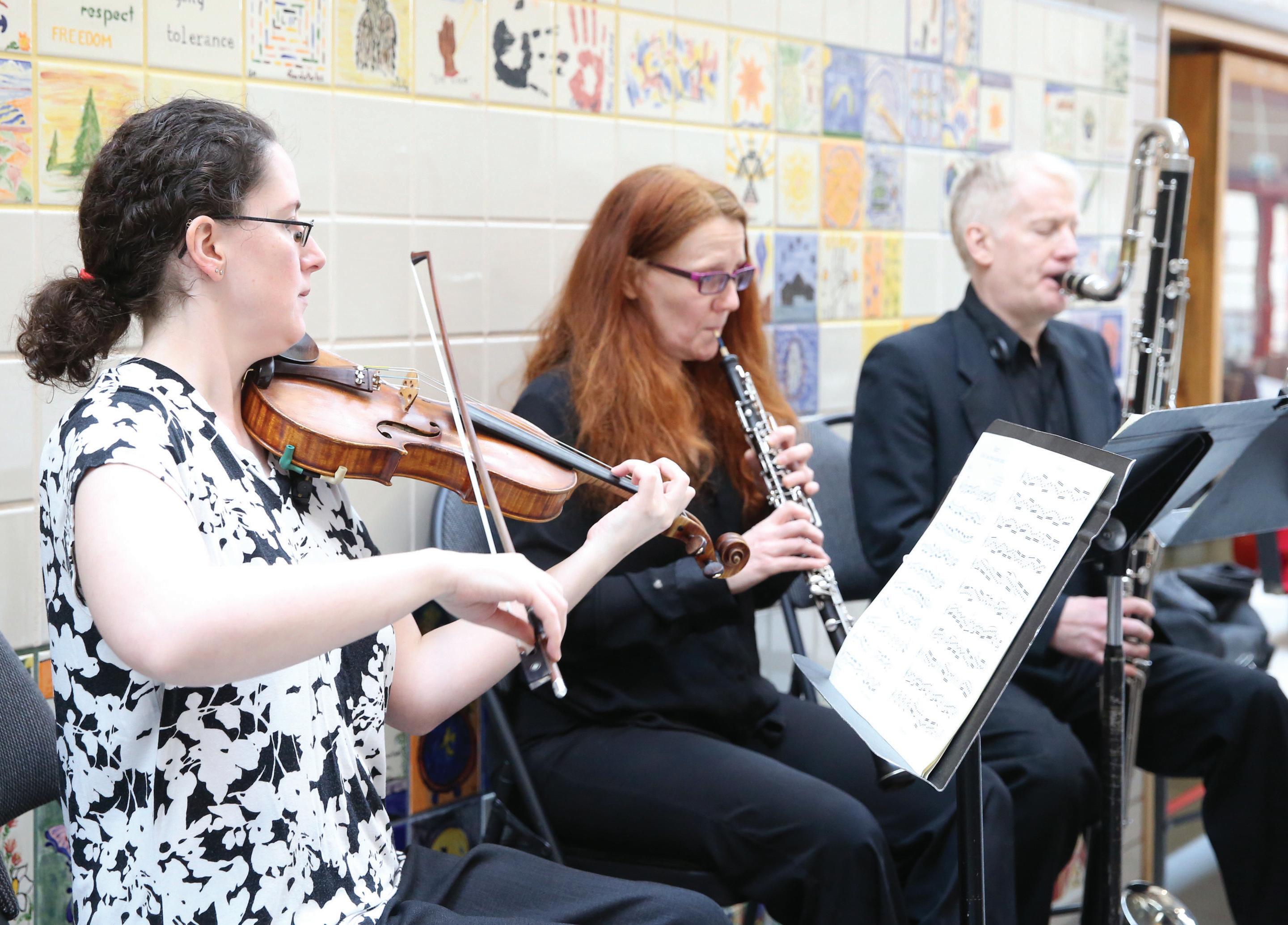
Alban Classical presents About Town at the College of New Caledonia on Thursday afternoon. Allison Bell was on violin, Erica Skowron was on oboe, and Simon Cole was on contra bass clarinet.
‘All of this adds up to a pretty steep rate increase’
—from page 1
“We need to ensure that the right incentives exist and, more importantly, that all drivers aren’t paying for the decisions that individuals make about who they lend their vehicle to,” Grossman said.
The $50 annual protection plan would apply to anyone who intends to lend their vehicle out fewer than 12 times a year to family members, friends, neighbours, acquaintances or co-workers – for example, if you lent someone your truck to help them move.
If an owner doesn’t buy the extra protection, and then someone with a worse safety record than the owner crashes their vehicle, ICBC would hit the owner with a steep fine.
Anyone who might drive that vehicle more than a dozen times in a year must be explicitly listed on the insurance and their driving record will be considered in calculating premiums.
The surcharge is one of several new levies that motorists will face next year when insuring their vehicle with ICBC, which has a monopoly on basic auto insurance.
Attorney General David Eby has said the changes are intended to increase rates for the riskiest drivers while providing savings for those with safer records.
He has said 39 per cent of ICBC customers could have rates fall by up to $50, 13 per cent by between $50 and $100, and 15 per cent by more than $100. However, those reductions are based on 2018 rates and could be wiped out by ICBC’s new fees and any rate hike for basic insurance in 2019.
Families, in particular those that have a teenager or new driver trying to obtain a driver’s licence for the first time, appear to be particularly hard hit under the new rules.
An average family with a basic insurance rate of $1,094 this year could pay almost $200 more next year for the same vehicle, reflecting what ICBC says is the increased crash risk of young drivers.
“All of this adds up to a pretty steep rate increase that David Eby is trying to hide,” said Opposition Liberal leader Andrew Wilkinson. “It sounds like David Eby’s newborn ICBC is going to be a whole bunch of flat rate fees with no real relationship to risk.”
All vehicle owners will soon be required by ICBC to list everyone who may drive their vehicle after September 2019, including spouses, children and other relatives (any friends or neighbours who will drive it more than 12
times a year).
ICBC’s new 2019 rate structure will mean the principal operator (say a parent with a lengthy clean driving record) will only account for 75 per cent of how ICBC sets the insurance premium on that vehicle. The highest-risk driver on the list (say a teenager) will be used by ICBC to calculate the remaining 25 per cent of the rate.
ICBC also plans to levy a new learner premium for drivers who must use the red ‘L’ signs, of between $130 and $230 annually, depending on where you live in B.C., to “recognize the risk that a learner driver represents.”
A crash by a learner would not affect the premium of the vehicle owner, or the learner’s driving record, according to ICBC. But once that learner graduates to a full licence, their risk would increase insurance rates for a parent who lets them drive the family vehicle.
Eby has said the insurance changes are intended to reform ICBC, prevent massive rate hikes and help it recover from a $1.3-billion loss last year. But Wilkinson said Eby has simply masked rate hikes on good drivers by calling them flat fees. Eby was not available for an interview and questions were redirected to ICBC.
‘Even the homes that are still standing suffered a great amount of... damage’
— from page 1
“The whole nation has taken a hit. Even the homes that are still standing suffered a great amount of either water damage or smoke damage,” Michaud said.
“Our wildlife has been significantly hit hard. Even our rivers, we may not even be able to go home and fish for a few summers.”
Forests Ministry spokeswoman Vivian Thomas confirmed Horgan spoke with McLean in August and raised the chief’s concerns about training and resources with Trudeau.
The prime minister met with Horgan during a cabinet retreat in Nanaimo, said Rachel Rappaport, an Indigenous Services Canada spokeswoman.
During the cabinet retreat, Trudeau flew on Aug. 23 to Prince George, where he pledged to “clear up those lines of flowing resources” to Indigenous communities.
Ottawa and B.C. have a 10-year, $29.6 million agreement to deliver emergency services to on-reserve First Nations, enabling them to receive comparable support to local governments, said Indigenous Services Canada spokeswoman Martine Stevens.
Citizen staff
A scheduled maintenance outage on one production line at the Northwood Pulp Mill will be extended another 70 to 80 days, Canfor Pulp Products Inc. said this week.
“The outage is to enable necessary tube replacements to its No. 5 recovery boiler to rectify damage discovered during routine preventative maintenance inspections,” the company said in a statement.
It will reduce production of its Northern Bleached Softwood Kraft pulp by 60,000 to 70,000 tonnes but its second production line will continue to operate.
“Due to the mitigation efforts by Canfor Pulp, the temporary outage is not expected to have a material impact on the financial condition of the company,” the statement said.
But she said significant efforts have been made this year to improve support for B.C. First Nations affected by wildfires, including streamlining a process to apply for funding for emergency preparedness and response projects.
“Our department is working with the Tahltan First Nation community to assess impacts. We are working closely with the First Nation and partners to assist on immediate re-entry needs as well as recovery planning,” she added in a statement.
B.C. has also established a new $50-million, threeyear program that allows communities to apply for funding to cover up to 100 per cent of their wildfire risk reduction projects.
McLean said he planned to apply for the funding and he urged other communities to do the same.
“Clean up your debris, cut your guards, clean up all your old stumps, trees, and dry wood and grass,” he said.
“Get your community members trained for fighting fires.
“With the climate changing like this ... fire is going to be the norm.”

Frank PEEBLES Citizen staff fpeebles@pgcitizen.ca
Regional author Jenna Morland has added another appearance to her Prince George visit.
The writer of Empress Unveiled, a young adult/urban fantasy story centred on high school protagonist Swayzi, was already committed to a book signing event at Cole’s Books on Oct. 6 but by popular demand she has now added an Oct. 5 appearance at Books & Company.
“It was really exciting to hear, but Cole’s sold out of their first shipment so we had to send them extra stock, and Books & Company ordered a shipment for their shelves as well, so you can now get Empress Unveiled at both those places in Prince George,” said Morland.
The Fort St. John writer is a Prince George relative by marriage (her husband is from this city, and many friends and family are here). Swayzi is a northern girl by literary construction.
Morland will be happy to talk about that with readers who come to meet her at Books & Company on Oct. 5 from 11:30 a.m. to 2:30 p.m. and at Cole’s Books on Oct. 6 from 11 a.m. to 4 p.m.


Pamela FAYERMAN Vancouver Sun
A B.C. group representing Canadians who’ve graduated from medical schools outside Canada and the U.S. has filed a lawsuit challenging the obstacles these doctors face in competing for the limited number of residency positions in B.C. hospitals.
One of the lead petitioners in the B.C. Supreme Court case is a doctor who has had to work in construction and as an ICBC claims adjuster because he can’t get one of the postgraduate residency training positions in B.C. Another is a medical student who’s had jobs in the film industry and walking dogs to make a living because he can’t get a residency.
The two men went to medical schools outside of Canada. Their problem is that the system gives preference to Canadians who attend medical schools in Canada. The system is designed to ensure that graduates of Canadian schools aren’t unemployed after many years of education.
The affidavits filed by members the Society of Canadians Studying Medicine Abroad suggest they had varying reasons for heading abroad for their medical education. Some attended schools that are ranked above many Canadian medical schools in international ratings, but many underestimated the nearimpossibility of returning home to practise medicine. A former dean of the UBC medical school has even warned aspiring doctors about this herculean feat.
The president of the advocacy group is Rosemary Pawliuk, whose daughter is doing a surgical residency in the U.S. after graduating from medical school in Ireland. Pawliuk said all Canadian citizens and permanent residents should be able to compete equally for access to postgraduate training “on the basis of individual skills, knowledge and attributes relevant to the practice of medicine.”
The University of B.C. postgraduate residencies – or specialty training – are required after the completion of medical school for doctors to work here. They are funded by the provincial government.
Such training is the “gateway” to licensing as a physician here, the lawsuit said, and the College of Physicians and Surgeons of B.C. is designated as the “sole gatekeeper” under provincial legislation.
Dr. Oliver Kostanski, who grew up in Vancouver but attended medical school in Poland so he could live near his grandparents, and Harris Falconer, who has been going to medical school in Barbados, are two of the lead petitioners in the lawsuit. It was filed against the College of Physicians and Surgeons, the B.C. Ministry of Health, the University of B.C., the Canadian Resident Matching Service, the Health Professions Review Board and the Association of Faculties of Medicine of Canada.
They say they face many barriers to positions when they want to return to B.C. after completing medical school abroad and that such barriers violate their constitutional rights. UBC, which accepts only 10 to 15 per cent of applicants to its medical school, has acknowledged the odds are stacked against Canadians who study abroad and want to return to practice here.
The overseas graduates face an “arbitrary” quota of 58 B.C. residency positions in the first round of matching, while Canadian and American medical school graduates have “exclusive” access to 288 positions, same as the number of students admitted to UBC medical school each year, the lawsuit says.
In addition, the overseas graduates are restricted to only a few types of residencies while graduates of Canadian and American schools can apply for positions in 70 different specialty areas, the advocacy group says.
About 1,000 international medical graduates (both Canadians and permanent residents) have been applying each year for the 58 B.C. positions – 52 in family medicine, and the rest in disciplines in which there are shortages: psychiatric, pediatric, and internal medicine.
This year, the process became even more difficult when it was decided that only 200 international graduates would be accepted into the first step, a vetting program to demonstrate their skills are equivalent to graduates of Canadian school.
While the lawsuit has been filed in B.C., the petitioners’ lawyer, Brian Samuels, said the case has national significance because other provinces have similar restrictions. None of the agencies being sued would agree to an interview.
In his affidavit, Falconer said he wants to go into psychiatry, like his father and stepmother. He’s attended a medical school in Barbados, which was structured on American and Canadian models. He’s taken psychiatry courses and done practical work at the University of Manitoba, at the Northern Ontario School of Medicine and at an addictions recovery facility in B.C. He said he’s passed all the exams to show his skills and education are equivalent to that of Canadian graduates. The lawsuit says UBC has recently instituted a new cutoff for its one-day clinical assessment test: it only allows the top 100 scorers (out of 400 applicants) to even be assessed.
“Canadian medical school graduates are not denied an opportunity to compete for postgraduate medical training because they did not score in the top 20 per cent or 25 per cent,” said Falconer, adding that the system is tilted in favour of “every medical graduate of a Canadian school.”
Falconer said he plans to apply again in 2019 but feels belittled, and marginalized, and may have to declare bankruptcy because of the $350,000 he owes in loans to pay for medical school.


and
Mark NIELSEN Citizen staff mnielsen@pgcitizen.ca
Conservation officers enlisted the help of Prince George Fire Rescue on Wednesday morning to retrieve a trio of black bear cubs from a tree in College Heights. Their mother, who had become habituated to feeding on garbage and was creating trouble, had to be put down, conservation officer Eamon McArthur said.
She left behind four cubs and attempts to trap them proved fruitless as they simply moved to a different tree.
“We managed to get a dart into the biggest one but then the rest moved too far up the tree,” McArthur said. “They were small and sometimes it’s hard to get a good shot and then the branches cause issues as well.
“Because it’s a slow-moving projectile, any kind of outside influence can affect your shot so rather than sit there and shoot darts all day at bears way up in the tree, we called the fire department.”
Firefighters brought a truck equipped with a ladder and bucket
and up conservation officers went with a jab pole to tranquilize the animals.
All four are less than a year old so there is hope they can be returned to the wild. They are now in the care of the Northern Lights Wildlife Society rehabilitation centre in Smithers.
McArthur said it was the first time he’s ever called on firefighters for help. The action took place on O’Grady Drive between Parent and Bernard Roads, and not far from Southridge Elementary School.
A mother bear taking care of so many cubs is a rarity and McArthur suspects one of them might have been adopted.
“He looks a little bit bigger than the others and he looks a little different,” he said.
Since April, conservation officers have had to put down about a dozen bears. That’s about half the number euthanized by the same point last year which is an improvement but still far from a clean record.
“It’s still a battle,” McArthur said and put the blame on households leaving out attractants, particularly garbage containers rather than
storing them inside their garages or sheds until collection day. If you need to keep your container outside, use a rachet strap to prevent bears from causing havoc, he urged.
“I understand that some people have garages that they’ve turned into something like home gyms and they don’t want stinky garbage sitting there and that’s why we have the intermediary with the rachet strap to hold the lid down,” McArthur said. “That way you can keep it outside.”
Containers can be put out on the street no earlier than 4 a.m. – and no later than 8 a.m. – on collection day and must be off the curb by 7 p.m. the same day.
Prince George is a “high beartraffic area,” thanks in part to the city’s proximity to the Fraser and Nechako rivers and people need to live accordingly in McArthur’s opinion.
“People are the reason that these bears keep coming back and people are the reason that these bears get destroyed,” he said. For a drone’s eye view of the work go to this story at pgcitizen.ca and click on the link at the bottom.
Frank PEEBLES Citizen staff fpeebles@pgcitizen.ca
The PGSO went big to begin with; now their going small.
The city’s symphony orchestra put on its annual huge outdoor show Pops in the Park to kick off their 2018-19 season and for their second presentation they are going to intimate lengths.
Tonight the PGSO’s chamber ensemble, made up of their professional core players, offers a show they call Fall Winds at the Ramada Ballroom.
“Come join us for this popular event on a Friday evening. Make it a date night,” said PGSO general manager Teresa Saunders.
“Listen to classical, pops, and jazz music played by our professional core musicians while sipping on a beverage of your choice and nibbling on an appetizer or sweet.”
Showtime is 7:30 p.m. and tickets are $30 (discounts available for students and seniors) available online at centralinteriortickets.
com
Tickets are also on sale for the
first mainstage concert of the PGSO’s new year. That event at Vanier Hall takes place Oct. 20. Entitled Russian Fantasies, this full-orchestra show will present the works of Chopin, Rachmaninoff and Tchaikovsky with a special guest appearance by piano soloist Andrew Staupe. For fans of the smaller chamber ensemble events, book off Jan. 18 for Winter Gales and May 3 for Spring Breezes, also held at The Ramada. Those tickets are also available now online.
A final investment decision on the $40-million LNG Canada project could come as soon as Oct. 5, according to a report from Bloomberg News.
The news agency reports that plans are underway for an Oct. 5 announcement, with a special event and fireworks ceremony scheduled the next day in Kitimat, the site of the proposed facility.
The timing of the events could change, Bloomberg reported, citing unnamed sources.
Royal Dutch Shell Plc is the lead partner in the LNG Canada project, with a 40 per cent stake, and Prime Minister Justin Trudeau met with CEO Ben van Buerden in New York on Tuesday.
Shell declined to comment on the timing of the announcement and said it’s reviewing the decision package sent to project partners.

A decision must be made by Nov. 30 to claim up to $6 billion in tax breaks, Bloomberg reports. Meanwhile, the Globe and Mail reports that the federal government has agreed to waive import tariffs on the steel needed for the project. Those tariffs amount to roughly $1 billion, however, a ruling is still to come from the Federal Court of Appeal.
“We are hopeful that Shell will make a positive investment decision which will lead to the creation of thousands of jobs,” said PierreOlivier Herbert, a spokesperson for federal Finance Minister Bill Morneau.
“There is due process in place for the remission of surtaxes in the event that there is no domestic supplier, and that process must be followed.”
Earlier this year, Petronas bought in for a 25 per cent stake in the project after cancelling its own liquefied natural gas project in Prince Rupert.
PetroChina Canada Ltd. will hold 15 per cent, Diamond LNG Canada Ltd., a subsidiary of Mitsubishi will hold 15 per cent, and Kogas Canada LNG Ltd. will have five per cent.
The price tag for the project –considered the largest in B.C. and Canadian history – includes TransCanada’s $4.8-billion Coastal GasLink pipeline, which will take natural gas from Northeast B.C. to Kitimat.

James McCARTEN Citizen news service
WASHINGTON — A riveting, high-stakes exchange of she-said, he-said played out in full view of the world Thursday as Brett Kavanaugh and Christine Blasey Ford traded vastly different versions of their high school days in the summer of 1982, with control of the highest court in the United States hanging in the balance.
Under a searing public spotlight, a “terrified” Blasey Ford put a face and a voice to her name as she told her harrowing story of an alleged high-school sexual assault she said she is “100 per cent” certain was committed by Kavanaugh, U.S. President Donald Trump’s nominee to the U.S. Supreme Court.
Later in the day, Kavanaugh himself –defiant, at times visibly enraged, other times struggling to hold back tears – refuted Blasey Ford’s claims before the Senate Judiciary Committee, excoriating its Democratic members as being complicit in what he called a “national disgrace.”
“My family has been destroyed by this,” said Kavanaugh, insisting he was not at the gathering at a suburban Maryland home in the summer of 1982 where Blasey Ford has alleged she was forced into a bedroom and sexually assaulted by a man she has “no doubt” was the nominee.
Earlier, without him in the room, 51-yearold Blasey Ford described fearing for her life when Kavanaugh allegedly covered her mouth to stifle her cries for help.
“He began running his hands over my body and grinding into me,” she recounted, describing in detail how her drunken assailant struggled to undress her.
“I believed he was going to rape me,” she said. “I tried to yell for help; when I did, Brett put his hand over my mouth to stop me from yelling. This is what terrified me the most, and has had the most lasting impact on my life: it was hard for me to breathe, and I thought Brett was accidentally going to kill me.”
And she denied being part of any political conspiracy: “I am an independent person and I am no one’s pawn.”
Blasey Ford spent the morning detailing her story and ably fielding questions – alternatively from Democrats and from Rachel Mitchell, the Arizona sex-crimes prosecutor tapped by Republicans to query witnesses on their behalf.
Where Blasey Ford was muted and selfeffacing, Kavanaugh was by turns defiant and defensive.
“This is a circus,” he declared, gesticulating at the Democratic side of the dais as he all but accused them of masterminding a “calculated and orchestrated political hit” – an echo of the sentiments expressed all week by the man who nominated him.
“This confirmation process has become a national disgrace,” and the allegations have “totally and permanently destroyed” his family and good name, he added.
“You may defeat me in the final vote, but you’ll never get me to quit. Never.”
During the morning session, Sen. Dick Durbin (D-Ill.) asked Blasey Ford how certain she was that Kavanaugh was her attacker. Without hesitation, she replied:


“100 per cent.” Then, when asked about the incident’s most indelible moment: the laughter, she said, her voice clear but close to breaking.
“The uproarious laughter between the two, and their having fun at my expense.”
Even GOP-friendly Fox News Channel host Chris Wallace had to acknowledge Blasey Ford’s testimony had been “a disaster” for Republicans. And despite Kavanaugh’s fiery opening statement, things didn’t get much better when Democrats began pressing him on two issues central to the political battle: whether he would support suspending the hearing to allow an FBI investigation, and whether friend Mark Judge, purportedly a witness to the alleged assault, should have been called to testify.
Kavanaugh refused to answer the latter question directly, and grew frustrated with Leahy’s questions about his high school yearbook and its apparent references to excessive drinking and “sexual exploits.”
Leahy eventually gave up, saying, “We had a filibuster, but not a single answer.”
Durbin appeared to corner Kavanaugh on whether he’d support an FBI investigation, leading to an awkward exchange of silence between the two – “I’m telling the truth,” the judge shouted repeatedly; “I’m innocent” – before South Carolina Republican Lindsey Graham came to his rescue.
Democrats are simply trying to keep the Supreme Court seat open in hopes of winning the White House in two years’ time, and don’t care if they “destroy” Kavanaugh’s life in the process, Graham said.
Supreme Court nominations are often hotly contested given the consequences: Kavanaugh’s presence there would ensure conservative control of the high court for a generation, and give Trump and Republicans a badly needed win going into the November midterms.
Then there is the question of two other accusers.
Deborah Ramirez alleges the nominee waved his penis in her face at a drunken dorm party during his first year at Yale. And Michael Avenatti, a lawyer for Julie Swetnick, has accused Kavanaugh of spiking drinks at parties where there were “gang rapes” of intoxicated women.
Jim BRONSKILL Citizen news service
OTTAWA — Federal lawyers want closed-door hearings in a high-profile court case about allegations of Canadian Security Intelligence Service spying on anti-pipeline activists.
The civil liberties group behind a complaint about the purported CSIS wrongdoing opposes the federal secrecy request, saying it blatantly violates the principle that justice must be seen to be done.
The matter was argued Thursday in an open session of the Federal Court of Canada.
The judge’s decision, expected in a month or so, will determine how much the public gets to see and hear when the court looks at the central issue: whether Canada’s spy agency overstepped the law in monitoring environmental activists.
The decision could also set a precedent that dictates whether future court challenges of CSIS activities are held openly or in secret.
It all began four years ago when the British Columbia Civil Liberties Association complained to the CSIS watchdog after media reports suggested the spy service and other government agencies considered opposition to the petroleum industry as a threat to national security.
The association’s complaint to the Security Intelligence Review Committee also cited reports that CSIS shared information with the National Energy Board about so-called “radicalized environmentalist” groups seeking to participate in the board’s hearings on Enbridge’s now-defunct Northern Gateway pipeline project.
In addition, the association alleged CSIS passed information to oil companies and held secret conferences with these petroleum industry players at its headquarters.
The complaint cited records, released through the Access to Information Act, that suggested certain organizations were viewed as potential security risks simply because they pushed for environmental protections.
The association argued CSIS’s intelligence gathering violated the law governing the spy service, which forbids CSIS from collecting information about Canadians unless there are reasonable grounds to suspect they constitute a threat to national security.
The review committee held closed-door hearings in Vancouver in August 2015.
The association called witnesses from environmental and public-interest organizations including LeadNow, ForestEth-
ics Advocacy Association, the Dogwood Initiative and the Sierra Club of British Columbia.
Last year, the review committee rejected the civil liberties association’s complaint. That prompted the rights group to ask the Federal Court to toss out the decision and order the committee to take a fresh look.
Meanwhile, the committee – citing confidentiality provisions in the law governing CSIS – placed a sweeping seal of secrecy on evidence it heard in the original probe, including the transcript of the hearing and all documents created or obtained by the committee during its investigation.
In anticipation of the Federal Court review of the committee findings, the government is preparing an unclassified version of the committee’s records. However, government lawyers argue even this version – stripped of national security information and other privileged details – should be sealed and excluded from the public Federal Court record. In addition, they want any hearings that mention such details to be held behind closed doors.
In a written submission in advance of Thursday’s hearing, the government says the traditional notion that courts should be open is of vital importance to the fair administration of justice, and confidentiality orders are granted only in special circumstances.
However, in this case, “the public interest in confidentiality outweighs the public interest in openness.”
In its submission, the civil liberties association says there is no evidence of any risk in making the unclassified materials public, or hearing arguments in open court about the committee’s probe of alleged spying.
The open-court principle is fundamental to democracies based on the rule of law, said Paul Champ, lawyer for the civil liberties association and its vice-president.
“When the court hearing deals with allegations of government misconduct, it is more important than ever for the public and the press to be allowed to see and hear what is said,” he added.
“One needs to wonder why the hearing needs to be secret if the government’s position is that no spying on environmentalists occurred.”
If the government motion for confidentiality is successful, then all future court challenges to intelligence review committee decisions will also have to be in secret, Champ said.

There’s so much to watch on TV, between a new season of network shows, playoff baseball set to begin, football in full swing, NHL hockey right around the corner and endless series and movie options on streaming services. Yet there’s only one must-see program this fall and there’s only three one-hour long episodes to watch so it’s not a huge time commitment but it might be the most relevant and thought provoking television you’ve ever seen.
The premise of First Contact is ridiculously simple: take six adult white Canadians – three men and three women – of various ages and backgrounds (but all with firmly held opinions about Indigenous peoples) and give them a month-long immersion into the lives and experiences of Aboriginal Canadians. The participants visit six communities, from Ahousaht on the west side of Vancouver Island to Kimmirut in Nunavut.
Nothing is held back and – particularly in the first episode – the six white participants are given ample opportunity to spout every racist and cultural belief they have about everything from residential schools, missing and murdered women, substance abuse, incarceration, remote reserves, traditional hunting and modern practices.
As Angela Sterritt reported for the CBC last week, after the first airing of First Contact on the Aboriginal Peoples Television Network (APTN), many Indigenous and non-Indigenous viewers were shocked and horrified by what they saw. Some felt the program was hurtful and suggested that it’s not the responsibility of Aboriginal people to combat racism and educate white Canadians. Others questioned the merits of trying to change the well-established, difficultto-change views of adults, rather than to
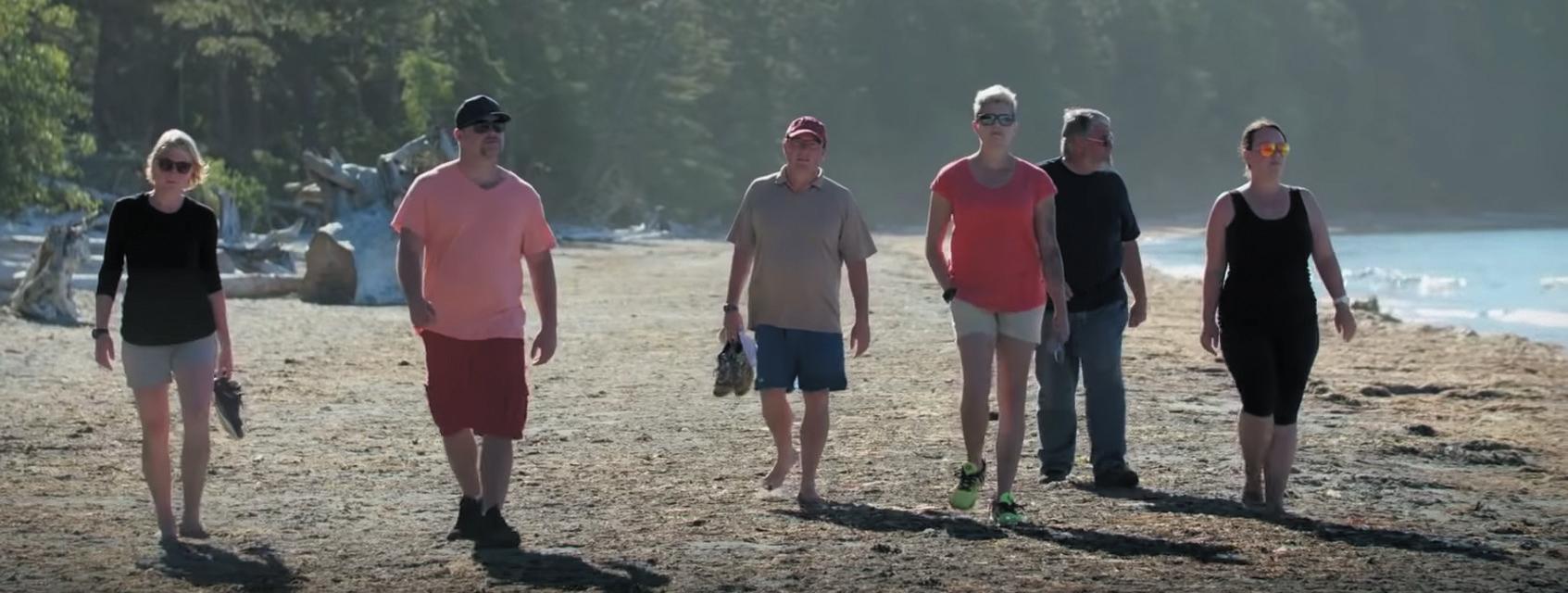
educate children to hopefully grow up with increased racial and cultural tolerance.
While those concerns are certainly legitimate and worthy of further discussion, they miss the two core themes of First Contact.
On one hand, the show portrays Indigenous peoples, their cultures and their concerns as everything that is good about Canada and Canadians. They are polite, patient and respectful, proud of who they are and where they come from, saddened by past harms and current problems but hopeful things are getting better.
They know how deplorable their living conditions are in many of their communities but their love and allegiance to their families and to their ancestral lands seems completely reasonable.
Put another way, the Indigenous perspective in First Contact is the “normal.”
On the other hand, the white Canadians are the abnormal ones, uneducated boors so stupid that they confuse their ignorance with knowledge and wisdom. Their disgusting biases are held up high for ridicule, their close-minded hate laid bare in all of its cruelty. They don’t even sound Canadian, they sound like racist American jerks, the ones too many white Canadians believe they are nothing like.
First Contact is as embarrassing and uncomfortable to watch for a white viewer as it is to be around that loud and dumb uncle everyone has that complains about lazy natives while stuffing his face with bannock on Canada Day.
Worse, in the comfort of our homes, we’re not just confronted with our uncle but ourselves.
Perhaps the only problem with First
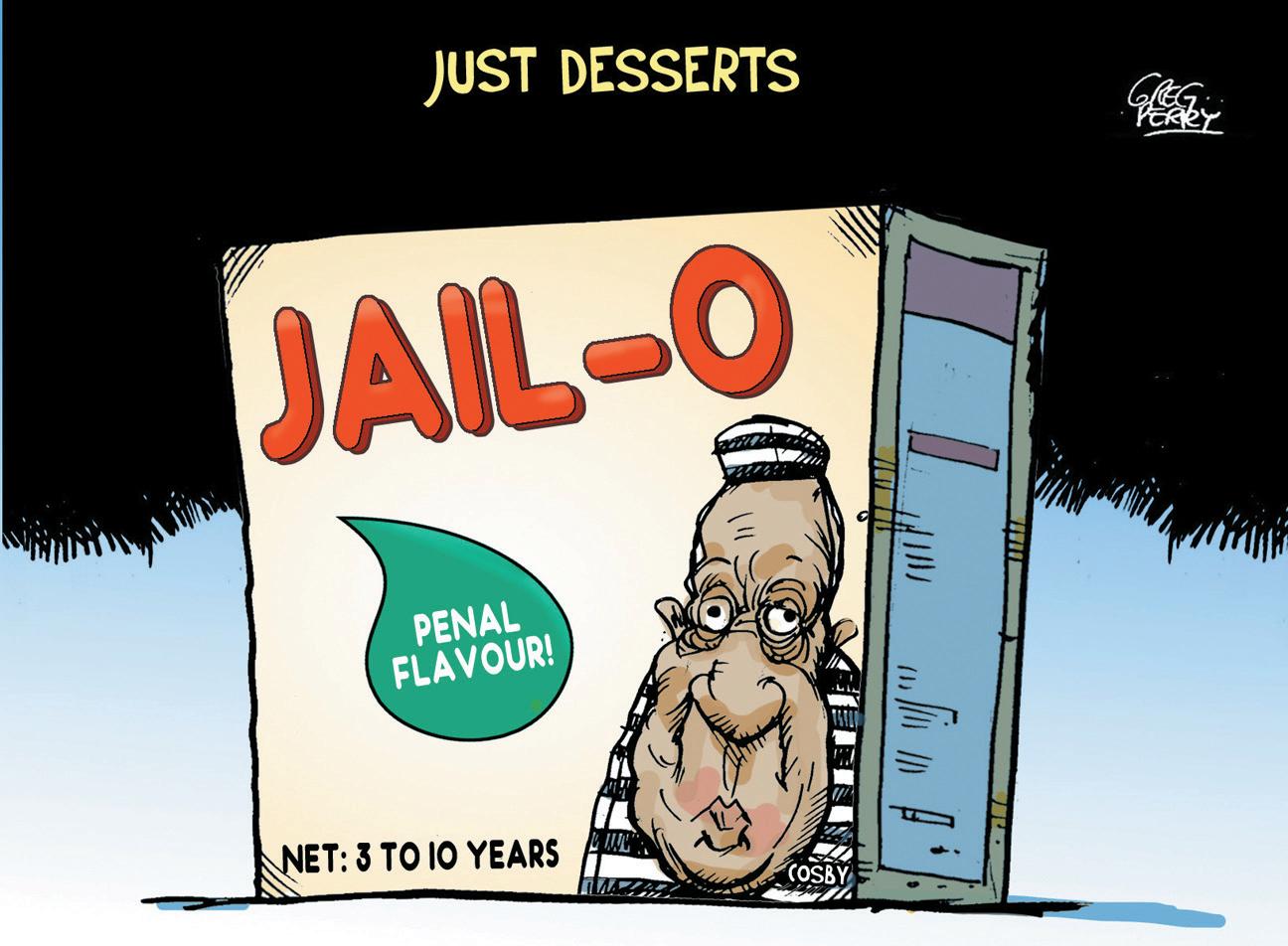
Here we go again. This is an interesting editorial from Neil Godbout.
Contact was airing it on APTN. Indigenous Canadians certainly require no education about their cultures nor reminders of the historical injustices they’ve suffered and the ongoing prejudices of mainstream white Canada.
First Contact belongs on the CBC. It would certainly be far more relevant modern Canadian viewing than Don Cherry or another tiresome remake of Anne of Green Gables. First Contact belongs in Parliament for the senators and MPs who think residential schools provided nothing but quality education. It belongs in colleges and universities and high schools. Most of all, First Contact is for Canadians who don’t have the first clue but think they already know everything there is to know about Indigenous peoples. —
Editor-in-chief Neil Godbout
The internet might well be the innovation that liberated access to ideas, but the social media it spawned are swiftly evolving into the jackboot that suppresses them.
To put what’s happening today to an increasing number of editors into perspective – Ian Buruma of the New York Review of Books is just the latest victim – one has to go back to the pre-internet days, when those of us within newsrooms were pretty much the only ones who knew what was and wasn’t in the paper or on the TV.
We spent our days scanning news wires for the information we thought was important and/ or useful to our readers. We controlled the flow of information and people trusted us to do so in a responsible manner.
tapestry within the public square. The world would be a better place. Well, not so much.
No one expected that people would attempt to express complex ideas within 140 characters and that others would be willing to respond without even a millisecond set aside for pondering and politeness.
Yes, liberty flourished, but the Eden-like public square many envisioned was swiftly overrun by a collection of cacophonic rabble dedicated to crushing ideas to which they’re opposed. This post-modern neo-puritanism is far more threatening to the polity than the soft paternalism practised in most “back in the day” newsrooms.
“Neither is allowed under the new bylaw.”
Unfortunately, Mr. Godbout is completely wrong, as the properties he is referring to are provincial property and not covered by the sign bylaw. The province owns, manages and maintains highways 16 and 97 in and through the City of Prince George.
I spent a great deal of time in early September talking to the provincial Ministry of Transportion, YRB, Elections BC and such regarding the rules about the jurisdiction of provincial highways in Prince George including when and where we are allowed to put our signs up.
The discussion around reducing campaign signs during the
He is correct in his assertion that I made a mistake putting up a campaign sign on Ospika that was too large. It was my mistake and I took the sign down. Now the bigger picture, in my opinion, is the fact that he suggests that I am in violation of the municipal sign bylaw with regard to the signs along the highways. Here is a quote from the editorial: “Long-time city councillors Murry Krause and Brian Skakun both have a long history of putting up signs along Highway 97 on the hillside leading from the Nechako River up to the Hart, as well as along Highway 16 on Peden Hill.
sign bylaw development was to reduce the amount of clutter and mess the signs had created on municipal property.
The boulevards and streets were littered with hundreds of signs, major intersections were a point of clutter and distraction for drivers.
Plain and simple it was unsightly and hard to manage.
There was specific discussion at the time about the use of political signs on provincial highways through our community.
We were informed then as we were again prior to the start of this election, campaign signs were allowed near provincial highways in Prince George city limits, contrary to Neil Godbout’s comments.
Brian Skakun Prince George
LETTERS WELCOME: The Prince George Citizen welcomes letters to the editor from our readers. Submissions should be sent by email to: letters@pgcitizen.ca. No attachments, please. They can also be faxed to 250-960-2766, or mailed to 201-1777 Third Ave., Prince George, B.C. V2L 3G7. Maximum length is 750 words and writers are limited to one submission every week. We will edit letters only to ensure clarity, good taste, for legal reasons, and occasionally for length. Although we will not include your address and telephone number in the paper, we need both for verification purposes. Unsigned letters will not be published. The Prince George Citizen is a member of the National Newsmedia Council, which is an independent organization established to deal with acceptable journalistic practices and ethical behaviour. If you have concerns about editorial content, please contact Neil Godbout (ngodbout@pgcitizen.ca or 250-960-2759). If you are not satisfied with the response and wish to file a formal complaint, visit the web site at mediacouncil.ca or call toll-free 1-844-877-1163 for additional information.
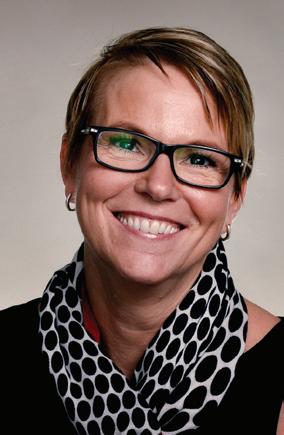
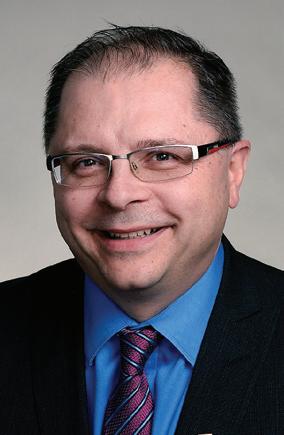
Mailing address: 201-1777 Third Ave. Prince George, B.C. V2L 3G7
Office hours: 9:00 a.m. to 5:00 p.m., Monday to Friday General switchboard: 250-562-2441 info@pgcitizen.ca
General news: news@pgcitizen.ca
Sports inquiries: 250-960-2764 sports@pgcitizen.ca
Classifieds advertising: 250-562-6666 cls@pgcitizen.ca
There were all kinds of interesting little decisions made every day that, in general, people didn’t know about. We never reported on suicides, for instance, because they inspired others to do the same. The editorial pages of one newspaper I worked for had, as many still likely do, banned commentary from anti-abortion perspectives. Others declared that the debate on global warming was over and skeptical perspectives would no longer be presented.
This ensured that ideas within the “contentious social issues” category didn’t inflame or divide public opinion, as if, provided they didn’t appear in the paper, they didn’t exist.
We kept the gates. We did our best, or so we said, to ensure the mob was not inflamed. When it was and we were at fault, we would beg and usually be granted forgiveness. But when we were right, we and our advertisers would defend our principles, chief among them freedom of speech.
And then the internet came along, and everyone we had excluded got a voice again. Many of us saw it as the dawn of a new age – one that would leave little room for prejudicial behaviours and would apply more pressure on professional media to behave even more professionally. This, surely, was a chance for people from all perspectives to become exposed to alternative and fresh points of view, inspiring a richer intellectual
Social media are now fully weaponized. What happened in New York is similar to what happened to former editors Hal Niedzviecki at Write (the Writers’ Union of Canada magazine) and Jonathan Kay at The Walrus. Buruma resigned under pressure after publishing a personal essay by Jian Ghomeshi, the once wildly popular CBC host accused of sexual assault only to be found not guilty in March 2016. According to the Canadian Press, “critics swiftly denounced the piece as a self-serving bid for public rehabilitation” –as if people found not guilty in the courts are forbidden to do so.
“It is rather ironic: as editor of the New York Review of Books I published a theme issue about #MeToo offenders who had not been convicted in a court of law but by social media,” Buruma told the Dutch magazine Vrij Nederland. “And now I myself am publicly pilloried.”
This is certainly not a defence of Ghomeshi or, for that matter, any other particular point of view.
It’s merely a plea for civility and liberal order – a world in which people who wish to influence opinion should shoulder the responsibility to, at the very least, engage in an argument before winning it.
Peter Menzies is a former newspaper publisher and Canadian Radiotelevision and Telecommunications Commission vice-chair.
Display advertising, digital advertising and website inquiries: 250-562-2441 ads@pgcitizen.ca Reader sales and services: 250-562-3301 rss@pgcitizen.ca Letters to the editor: letters@pgcitizen.ca
Website: www.pgcitizen.ca
Website feedback: digital@glaciermedia.ca Member


RUSSELL JAMES/COLUMBIA RECORDS VIA AP
Walls is the new album by Barbra Streisand. The record is her first with mainly original songs since 2005.

NEW YORK — When Barbra Streisand started writing lyrics for her new political song, Don’t Lie to Me, she initially aimed for “very subtle” references to U.S. President Donald Trump. But she couldn’t help herself.
“I just went ballistic,” she said.
Don’t Lie to Me, released Thursday, finds a passionate Streisand questioning the nation’s leader and pleading for change. Lyrics include, “How do you sleep when the world keeps turning?/All that we built has come undone/How do you sleep when the world is burning?/Everyone answers to someone.”
“I just can’t stand what’s going on,” the Oscar, Grammy and Emmy winner said in a Wednesday interview. “His assault on our democracy, our institutions, our founders – I think we’re in a fight. ... We’re in a war for the soul of America.”
Don’t Lie to Me appears on her new album, Walls, her first project of mainly original tracks since 2005. It will be released Nov. 2.
Streisand, a proud and outspoken Democrat who has campaigned for politicians over the years, said she felt moved to write original music because of what’s happening in the world. Of The Rain Will Fall – another new song she co-wrote – she says, “You can spell rain several ways.”
“But it’s my prophecy,” she said, laughing. “I hope it comes true.”
Gladys Knight among those set to honour Franklin
NEW YORK (AP) — The American Music Awards will honour the Queen of Soul next month.
Dick Clark Productions tells The Associated Press that Gladys Knight, Ledisi, Mary Mary, Donnie McClurkin, CeCe Winans and musical director Rickey Minor will pay tribute to Aretha Franklin’s gospel roots and her iconic album, Amazing Grace, at the Oct. 9 event. It will air live on ABC from the Microsoft Theater in Los Angeles. Franklin died last month. She won six AMAs throughout her career and even hosted the show in 1976 and 1983.
Sabrina Owens, Franklin’s niece and the executor of her estate, says in a statement: “When I heard some of the initial ideas for the tribute, I knew without a doubt that this tribute will go down as one of the best in American music.”
Dench disagrees with treatment of Spacey
SAN SEBASTIAN, Spain (AP) — Judi Dench says she doesn’t condone any inappropriate conduct by Kevin Spacey, but says scrubbing him from a film sets a questionable precedent.
The celebrated British actress says “I can’t approve in any way the fact that, whatever he has done, that you then start to cut him out of films.” Spacey was erased from All the Money in the World last year and replaced with Christopher Plummer after allegations of sexual harassment against him.
Don’t Lie to Me came to life during a road trip. Streisand said listening to the news in the car “was making me sick, listening to lies, listening to things that are such craziness.” So she turned on music and felt motivated to write a new song.
“I wanted to talk about the things that were making me feel so sad, heartbroken,” she said. “I’m a kind of fierce American. I don’t know who we are anymore as a country. Are we embracing people who flee oppression? Or are we separating children from parents, putting them in cages? I don’t know if people care about the planet, the survival of the planet. Do they care about clean air? Clean water? Clean food? If they do, how could they vote for somebody like Trump, who believes it’s a hoax?”
Streisand adds, “I’m frightened for this country. And yet, I have hope.”
On her 11-track Walls album, she also reworked classics like Imagine, What a Wonderful World and What the World Needs Now.
Streisand, 76, said she “kind of dedicates this album to the young people who are speaking out.”
“It’s important that people vote. It’s important that people believe in the power of their own voice and how much that changes things. It’s like the kids speaking out, the Parkland kids,” she said.
“It’s easy to feel powerless now but we’re not if each of us speak up and get out and vote,” she added.
Dench told the San Sebastian film festival in Spain that Spacey “is and was a most wonderful actor.”
She added: “Are we to go back through history now and anyone who has misbehaved in any way or has broken the law or has committed some kind of offence, are they always going to be cut out?”
TORONTO (CP) — Michael Buble is putting his heart on full display this fall with a jubilant return to making music.
The Canadian crooner announced on Facebook Thursday that he’ll release Love, spelled with heart emoji instead of the word, on Nov. 16.
He also released the first single When I Fall In Love as a taste of what’s to come.
It’s his first album since Buble stepped away from showbiz two years ago to help care for his son Noah.
The boy, who is now five years old, underwent treatment for an unspecified form of cancer.
The singer and his wife Luisana Lopilato also welcomed their third child, a baby girl, in July.
Buble shared news of his return on a Facebook video while dipping his hand into a bowl of chocolate hearts.
“I know that I’ve been gone about two years and I haven’t said much to you guys on any format like this, and I figured what better way than to do it with chocolate in my teeth,” he joked.
“This is also an opportunity to say thank you on behalf of my family and I. There’s no way you can know how much you meant to us, how much your prayers, how much your thoughts, how many times you got us through. For me this is a small way of being able to thank you and tell you how much I love you.”
Hillel ITALIE Citizen news service
NEW YORK — Appearing on the same stage where months earlier Dustin Hoffman faced repeated questions about alleged sexual harassment, Bill Murray praised the actor as a “really decent person.”
“Dustin Hoffman is a great man,” Murray said Wednesday night at Manhattan’s 92nd Street Y. “He’s crazy, a ‘Borscht Belt’ flirt, has been his whole life. (But) he’s a really sweet man.”
Hoffman denied any wrongdoing and said Oliver was making “an incredible assumption” about him.
Murray was interviewing his former agent, Michael Ovitz, whose memoir has just been published. Murray and Hoffman were Ovitz clients when they worked together in the 1982 film Tootsie.
During an event last December at the Y, Hoffman was chastised by interviewer John Oliver over allegations he had groped an intern while making a TV movie of Death of a Salesman in the 1980s. Hoffman denied any wrongdoing and said Oliver was making “an incredible assumption” about him.
Ovitz himself has praised the
#MeToo movement, while also speaking warmly of the ousted CBS chairman and CEO Les Moonves, a former client. In his memoir, Who is Michael Ovitz? the former head of the Creative Artists Agency writes that “a reckoning has come” and calls it “absolutely necessary and long overdue.” He recalls suspending an agent at CAA for harassing an assistant but also acknowledges that with his clients, some of whom he had heard were “treating younger women as sexual objects,” his focus was “frankly on our business rather on social justice.”
“I deeply regret that,” he writes.
During a recent interview with CNBC, Ovitz said he felt “horrible” for Moonves, who resigned earlier this month after numerous women accused the long-time television executive of sexual misconduct.
Ovitz called Moonves “the most terrific guy” and said he was “always a class act.”
“I had no idea of any of these issues,” Ovitz told CNBC. “Still, I’m not sure I quite understand it all.”




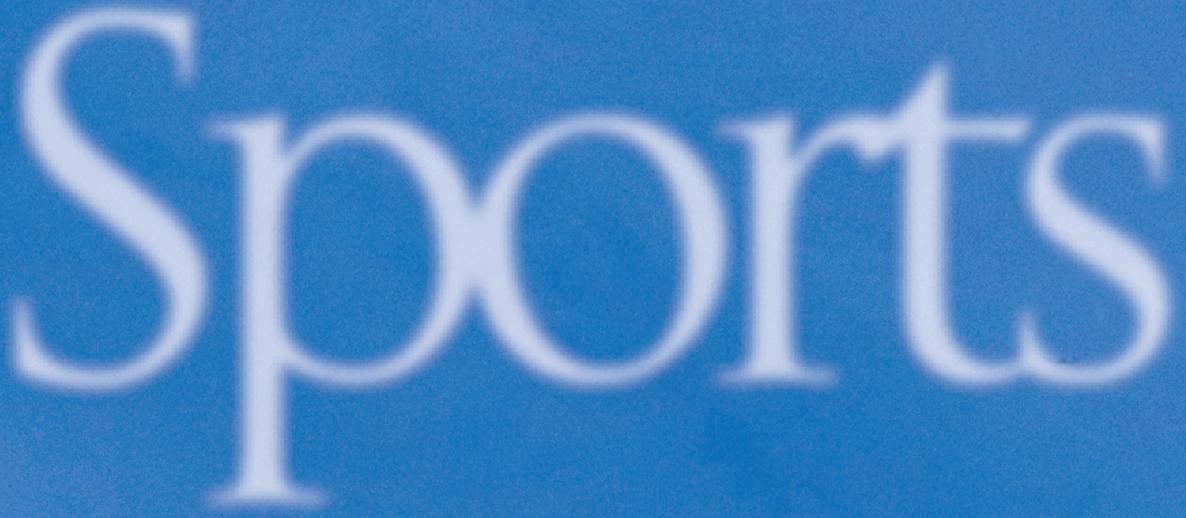

Wrigley Field in Chicago, baseball’s mecca, became Jared Young’s field of dreams come true when the 23-year-old from Prince George, second from left, was an invited guest of the Chicago Cubs. In a ceremony before the Cubs played the Pittsburgh Pirates, Young accepted the award as the Cubs’ minor league position player of the year for 2018. Standing next to Young at the far left is Jaron Madison, the Cubs’ director of player development, and, at right, Matt Swarmer, selected the Cubs’ minor league pitcher of the year. On the
is Jason McLeoud, the team’s senior vice-president of scouting and player development. Young split his season between the Class A South Bend Cubs of the Midwest League and Class A-Advanced Myrtle Beach Pelicans of the Carolina League, while Swarmer started the season with the Pelicans and was promoted to the double-A Tennessee Smokies.
Ted CLARKE Citizen staff tclarke@pgcitizen.ca
Having quenched their thirst after an extended drought, the Prince George Cougars are feeling rather parched again. They want the winning to continue against the Kelowna Rockets and will get their chance to take another victory sip tonight in their home opener, the start of a twogame set at CN Centre.
Wednesday night at Prospera Centre, the home of the Rockets, the Cats skated off with a 4-2 triumph, their first win on Kelowna ice since Nov. 15, 2016. Considering the success of the Rockets the past couple decades as one of the powerhouse teams of the Western Hockey League, any time and any place the Cougars can beat them, that’s something worth celebrating.
Wednesday’s game, the first of nine between the Cougars and Rockets this season, was a battle of two winless teams. The Cougars
were coming off a pair of losses last weekend in Victoria (2-1 in a shootout Friday and 5-1 Saturday), while the Rockets dropped both games of a home-and-home series against the Kamloops Blazers (3-1 in Kamloops and 4-1 in Kelowna).
“The guys played well – from the drop of the puck it was like we were a different hockey team and it was very similar to our first game in Victoria,” said Cougars head coach Richard Matvichuk.
“We were aggressive and doing the right things and we weren’t turning the puck over in the bad areas.
“We have a saying: ‘we like to be second first, all over the ice. So the faster we can get our second guy in there and get an outnumbered situation, the better it’s going to be.”
Vladislav Mikhalchuk, the Cougars’ 19-year-old right winger from Minsk, Belarus, flung the winning dagger from the face-off circle with just 3:33 left, a wrist shot that dipped just enough to fool goalie James Porter. That was the Cougars’ answer after

Leif Mattson had tied it exactly a minute earlier. Ilijah Colina’s empty-net backhander ended the suspense when he put the puck in off the post.
Mikhalchuk, the game’s first star, set up the first P.G. goal on a two-man advantage in the first period, a one-timed goalmouth connection from waiting defenceman Ryan Schoettler. Mikhalchuk forms a forward trio with left winger Jackson Leppard and centre Ethan Browne.

“(Mikhalchuk) came back with a very strong performance and when he does let that thing fly it’s obviously a pretty good shot and a prime example was the game-winner (Wednesday),” said Matvichuk. “That line has a bit of everything. Leppard has the grit and his offensive talent and Browne, with the way he sees the ice and the way he’s able to make plays, and Vlad, he’s a shooter with a physical element as well.” Taylor Gauthier drew his third consecutive start in net for the
Cougars and looked sharp while stopping 27 of 29 shots. Special teams weighed heavily in Wednesday’s decision. The Cougars went 1-for-4 on the power play and held the Rockets without a goal despite seven manpower advantages. In Saturday’s game the Cougars allowed two shorthanded goals and three came on Victoria power plays.
“Obviously we want to be aggressive and we want to play hard every night but we have to play within the rules,” said Matvichuk. “That’s something we addressed after the game and something we’ll address again (Saturday) morning. Discipline is a huge part.
“You have to find ways to stay out of the penalty box. If it’s looking the guy in the eyes when you’re hitting him or knowing the new rules now... you can’t hit from outside of that 90-degree zone. It’s a learning curve for the guys who haven’t played in the league before and we have to do a better job of being physical in the right areas.”
— see ROCKETS, page 10
Ted CLARKE Citizen staff
For the sake of the Prince George Spruce Kings, it’s a good thing they’re off to a quick start. Five wins in their first six games to start their B.C. Hockey League season rates as one of the best opening acts since the Spruce Kings joined the league in 1996. As good as it was taking 10 of a possible 12 points, it’s left them absolutely no breathing room atop the Mainland Division standings. The second-place Chilliwack Chiefs and third-place Coquitlam Express are right there with the Spruce Kings (5-10-0), each with 10 points.
Things might stay tight here for a bit, it’s a good division.
— Adam Maglio
ing and someone has their own dressing room there and it’s tough,” said Kings head coach Adam Maglio, who signed a two-year contract extension this week.
“Three-in-threes are hard and we need to make sure we’re ready for Friday’s game and build the weekend from there.”
The Spruce Kings are coming off a 3-2 win over the Penticton Vees last Friday at the Showcase. Their only loss came last Thursday – a 4-0 decision despite outshooting the West Kelowna Warriors 35-22.
bit of an indicator. Things might stay tight here for a bit, it’s a good division.” It’s still early but four of the five Mainland Division teams (Prince George, Chilliwack, Langley, Coquitlam) have winning records and as Maglio pointed out, that hasn’t happened in quite some time. Having reached the Fred Page Cup final last spring the Kings know their opponents won’t be taking them lightly.
By that time the Kings might be a little road-weary. They play the Surrey Eagles (1-6-0-0) tonight at 7 in South Surrey, then have a date with the Langley Rivermen (42-0-0) Saturday (7:15 p.m. start).
“This is our first road test – everyone was on the road at the Showcase except Chilliwack – so we’re going into someone’s build-
The Chiefs (5-2-0-0) have just two losses on their record, both courtesy of the Spruce Kings on opening weekend three weeks ago in Prince George. The Express (5-3-0-0) also came back from P.G. two weekends ago with a pair of losses and will have payback in mind when the Spruce Kings come calling Sunday (3 p.m.) in Coquitlam.
“Besides us and Surrey, everyone else in the division swept (their two games) at the Showcase, playing out-of-division opponents, and teams were able to gain ground,” said Maglio. “This week, I think, is where some separation might happen with lots of divisional games. We have some games against each other here and that will be a
“Surrey is no slouch, they beat Vernon at the Showcase and they have a good team,” said Maglio. “They have a few holes in their lineup and they’re trying to address that and that team is capable of winning games. It’s always difficult playing a team that just lost and I don’t think they’re happy with their loss (Wednesday night) to Coquitlam and they’ll be ready to go on Friday.” — see BRAR, page 10

— from page 9
Former Seattle Thunderbird Mike MacLean, a sixfoot-seven, 234-pound Penticton native, scored his first goal as a Cougar, which gave them the lead 11 minutes into the third period. MacLean is grouped with Josh Maser and Connor Bowie on what rates as one of the beefiest lines in the WHL.
“It’s a line that should be very successful if they play the north-south game the way they should because they’re all very reliable defensively and the way that they can skate and their physical element can be very beneficial to us,” said Matvichuk.
The Rockets still have talented playmakers in Mattson, Kyle Topping, Connor Brugggen-Cate and Nolan Foote but are missing the offensive firepower of NHL draft picks Cole Lind (Vancouver), Dillon Dube (Calgary) and Cal Foote (Tampa Bay), all of whom have one year of junior eligibility left. Through three games the Rockets have scored just four goals, two fewer than the Cougars, and it’s unlikely the defending B.C. Division champions will get any of their three pro prospects back.
The Cougars are now in their 25th season since the franchise shifted from Victoria and throughout tonight’s game the team will announce its all-time list of the top 25 Dream Team players. The first 20 were selected by the media and team officials and five were picked by fans in an online Citizen poll.
A tailgate party outside CN Centre starts at 4:30 today with food available from White Goose Bistro and Frozen Paddle and music from DJ Ant. The Cougar players will be there to greet the fans starting at 4:45 p.m., arriving in antique cars supplied by the Cruisin’ Classics and Overdrive car clubs.
The opening face-off tonight is set for 7, with the same game time on Saturday.
— from page 9
Before tonight’s game the Eagles will retire the No. 10 jersey worn by centre Jaxson Joseph when he played for Surrey in 2015-16. Joseph, the son of former NHL defenceman Chris, was killed in the Humboldt Broncos bus crash in April.
Twenty-year-old Kings left winger Ben Brar leads the BCHL with seven goals in just six games. The Abbotsford native is close to locking up a U.S. college scholarship, playing on the top line with centre Ben Poisson and Nolan Welsh. Maglio says he’s been leaning on Brar to score in the absence of Ethan de Jong, who now plays for Quinnipiac University.
Poisson, 20, is still looking for his first goal but has five assists through six games.
Left winger Patrick Cozzi, a Colorado College recruit for 2019, has also been a regular point producer with two goals and four assists in six games.
Logan Neaton, a 19-year-old Michigan native in his first BCHL season, is the top-ranked BCHL goalie, sporting a 1.75 goals-against average and .922 save percentage. He’s played in five of the six games, coming in to relieve Brad Cooper in the second period of the Penticton game. Cooper was impressive in his first start of the season, a 19-save shutout Sept. 15 when the Kings beat Coquitlam 3-0 at Rolling Mix Concrete Arena.
“Our goaltending has been good but we play a pretty good team game that gives our goaltending some run support and defensive support in front,” said Maglio. “We’re fast and try to play the right way consistently and that’s where we’re succeeding. It’s our consistency, playing the right way, shift to shift. I like the speed of our group and the work ethic.” Rookie defenceman Brennan Malgunas, 18, a Prince George native who moved up to the BCHL this season from the Cariboo Cougars major midgets, did not make the trip. He’s been in sickbay since the start of the season.
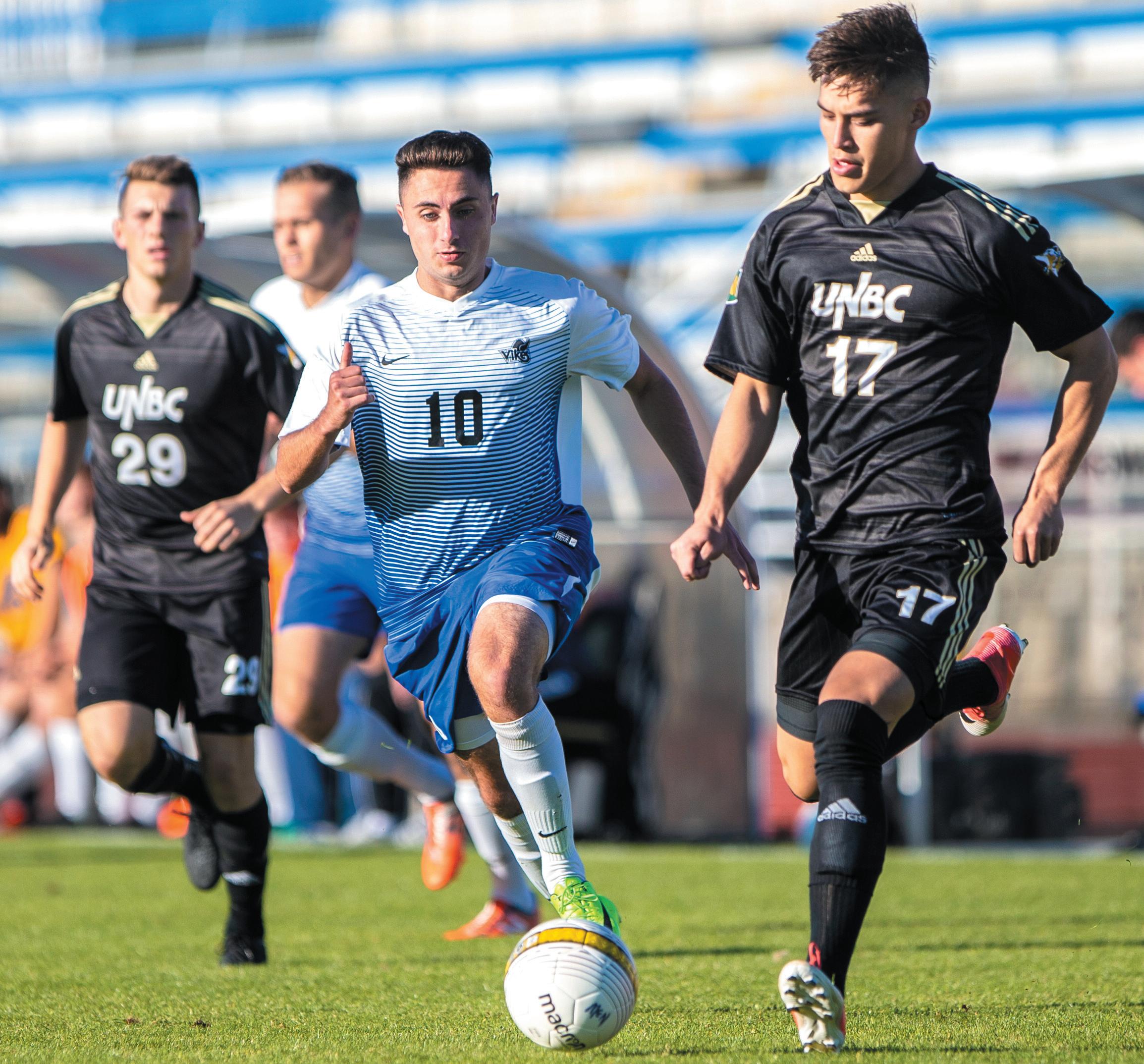
Ted CLARKE Citizen staff
Three consecutive wins on the Canada West men’s soccer trail was uncharted territory for the UNBC Timberwolves.
Rather than let that streak come to an end, the T-wolves made it four in a row Thursday night in Victoria.
UNBC fought off a 1-0 deficit with two goals late in the second half and beat the Victoria Vikes 2-1.
The T-wolves (4-1-2) are off to their best start in their seven-year U Sports/CIS history, solidly entrenched in third place in the Canada West Pacific Division.
UNBC trailed until the 69th minute, when rookie Anthony Preston sprung Owen Stewart on a breakaway and the mid-
fielder tucked the ball in for his second goal of the season. Pierre Barrafranca, an import from France, scored the winner, a curling shot from 20 yards away, at the 82:23 mark. Preston drew the assist, the first multipoint game for the 18-year-old Duchess Park secondary school graduate.
Victoria drew first blood five minutes in on a breakaway strike from Matteo Ventura – his seventh goal in eight games.
In the last four games, UNBC goalie Rob Goodey has allowed one goal. He made three saves in Thursday’s game.
The T-wolves will be in Vancouver to play the UBC Thunderbirds (7-0-1) tonight (6:30) and Sunday (1:30 p.m.). The first-place T-birds have won seven straight and are ranked third in the country.
Ted CLARKE Citizen staff
After being force-fed a couple of one-goal losses on the road last weekend, the UNBC Timberwolves are counting on home cooking being quite a bit more pleasing to the palate in their next two games.
But they better keep the Pepto-Bismol handy.
They’ll have to stomach taking on the UBC Thunderbirds (tonight, 6) and the Victoria Vikes (Sunday, noon) – two of the spiciest women’s soccer squads in Canada West.
The T-birds (5-2-0) are second in the Pacific Division standings, having won their past two games, while fourth-place Victoria (4-3-0) is on a three-game winning streak. Both games are at Masich Place Stadium.
The T-wolves (1-3-2) took on the first-place Trinity Western University Spartans last Saturday in Abbotsford and pushed the defending Canada West champs and national bronze medalists to the limit, losing by a 4-3 count. UNBC started that weekend with a 2-1 loss in Kamloops to the
Thompson Rivers University WolfPack.
Through six games, the T-wolves have 12 goals, three more than their entire 14-game output from last season. Paige Payne leads the team with four goals.
“We’ve really been sticking to a process, for three years now,” said UNBC defender Mara McCleary. “Things are starting to really come together for us this year, so that is producing lots of goals. Plus, we are getting a lot of success in other parts of the field.”
Danielle Steer, a second-year forward, has six of UBC’s 15 goals this season and leads the team in points with 11. The T-birds are No. 8 in the U Sports national rankings.
“UBC is a great all-around team, and they really, really challenge us when we go to play them,” said McCleary. “I think we will be looking to set a competitive standard from the get-go.
“Playing UVic, there are a lot of people I have grown up playing with,” added McCleary. “Playing them on turf instead of their home grass will be different for them and hopefully an advantage for us.”

Currencies
OTTAWA — These are
Mike BLANCHFIELD Citizen news service
Donald Trump’s Canadian envoy is coming to the defence of Canada’s “smart” and “articulate” foreign affairs minister, one day after the U.S. president suggested he didn’t like Chrystia Freeland’s NAFTA negotiating style.
Trump told a freewheeling press conference Wednesday that the Americans don’t like Canada’s trade representative “very much,” a comment that appeared directed at Freeland, the political leader of the Canadian team renegotiating the North American Free Trade Agreement.
The president’s personalized attack uncorked debate Thursday about whether Freeland brought Trump’s wrath upon herself during 13 months of delicate NAFTA talks – with her Washington speech in June and other recent appearances in which she criticized the administration’s “America First” foreign policy.
Freeland has met regularly over the last month with U.S. Trade Representative Robert Lighthizer at his Washington headquarters for closed-door talks. Senior political advisers have joined them at the bargaining table, including top staffers in the Prime Minister’s Office, Trump’s son-in-law and adviser Jared Kushner, and the countries’ ambassadors, Canada’s David MacNaughton and his U.S. counterpart, Kelly Craft.
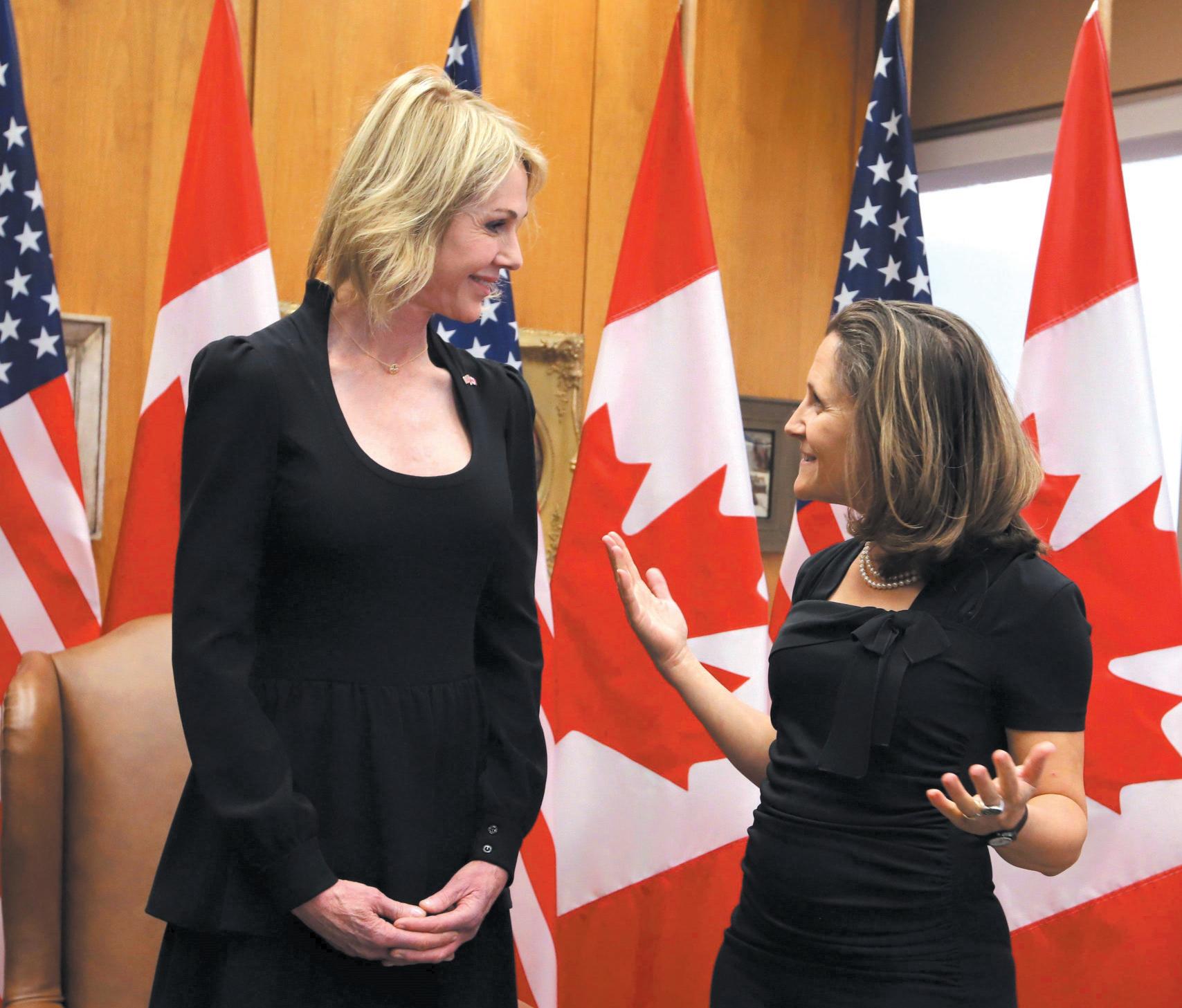
The markets today
TORONTO (CP) — Investors shrugged of ongoing trade risks to send North American markets higher on Thursday, raising the potential for a larger eventual correction, says an investment expert. By not pricing in uncertainties, equity markets are becoming inflated and overvalued as trade issues have so far not hurt corporate earnings, said Kash Pashootan, CEO and chief investment officer at First Avenue Investment Counsel Inc.
“What that means is two to three quarters from now, if these trade wars actually hit the bottom line of corporations, they’re going to have a real surprise and selloff because you weren’t pricing it in along the way,” he said.
“If it was a five-per-cent selloff, it’s not out of the question to see that traditional five-per-cent selloff now be a 10 or 15 per-cent selloff because the market does not price it in at all along the way.” He said the market is pricing in perfection even though they are late in nearly a 10-year positive cycle.
“A correction this week, next week or next month should not be a surprise to any investors,” Pashootan said.
The S&P/TSX composite index closed up 35.34 points to 16,204.62 after hitting a high of 16,262.84 on 223.8 million shares traded.
The index was led by the energy sector, which rose 1.77 per cent on the back of higher oil prices. The November crude contract was up 55 cents at US$72.12 per barrel. Also gaining were the information technology, telecom, consumer discretionary and industrials sectors.
The healthcare sector led on the downside on the back of large decreases by cannabis stocks.
In New York, the Dow Jones industrial average rose 54.65 points to 26,439.93. The S&P 500 index was up 8.03 points to 2,914, while the Nasdaq composite was up 51.60 points to 8,041.97.
The Canadian dollar traded at an average of 76.66 cents US compared with an average of 77.07 cents US Wednesday.
The decrease in the loonie came a day after the Federal Reserve again raised interest rates and signalled that further hikes are likely.
On Thursday, Craft offered her view of the tone inside that room.
“Ambassador Lighthizer and Minister Freeland have tremendous respect for one another. I have seen their relationship first hand over the past 10 months. And more so as they work through differences while keeping focused on the end result,” Craft told The Canadian Press.
“I also have tremendous respect for Minister Freeland.... She’s smart, articulate, and has been a good friend since my arrival in Ottawa.”
Craft is coming up on the end of her first year as the Canadian representative of one of the most unpopular U.S. presidents, at a time when the fate of the continent’s economy hangs in the balance.
The U.S. and Mexico are poised to present the text of their bilateral trade deal today, as pressure mounts on Canada to join that pact. The U.S. Congress is pushing Canada to join the U.S.-Mexico pact by a self-imposed deadline of Sunday to allow Mexico’s current government to sign the deal before it leaves office on Dec. 1.
Cecilia Malmstrom, the European Union trade minister, also praised Freeland’s negotiating style Thursday at an event in Montreal, where she marked the first anniversary of the Canada-EU trade deal, known as CETA.
“Minister Freeland – and also her chief negotiator, her ambassador – was key in getting CETA done,” said Malmstrom.
“We got to know them as very tough but
fair, well-informed, engaged, very professional negotiators. And I am convinced that they have the same approach to those (NAFTA) negotiations.”
MacNaughton for his part said Thursday that he was feeling less optimistic about reaching a deal on NAFTA than he was before Trump’s comments.
“I think yesterday I would have said the glass was half-full and today I’d say the glass is half-empty,” MacNaughton said during a speech at the Global Business Forum in Banff, Alta.
“That kind of rhetoric doesn’t make it easier for us to compromise. But, you know, as I said yesterday, (Trump) doesn’t call me for advice very often.”
MacNaughton added that Trump’s Sunday deadline for Canada to join the U.S.-Mexico deal does not mean Canada should “sign up for things we don’t agree with.”
Prime Minister Justin Trudeau gave credit Thursday to his NAFTA negotiating team, and suggested the American side shouldn’t be surprised by the tone of the talks.
“The Americans are finding that the negotiations are tough because Canadians are tough negotiators, as we should be,” he told a group of reporters on Thursday morning in Ottawa.
Trudeau also contradicted Trump’s account, from the same Wednesday press conference, that he rejected a request from the prime minister for a meeting to discuss NAFTA
OTTAWA — The governor of the Bank of Canada says disruptive technologies are making it harder to determine whether, and how quickly, to raise interest rates.
But Stephen Poloz says Canadians need not fear the new digital age and, in fact, he adds they are already benefitting from it, and embracing it.
Poloz made the comments in a speech today in Moncton, N.B., where he also said the Canadian economy had fully recovered from the 2008 financial crisis and the collapse in oil prices in 2014.
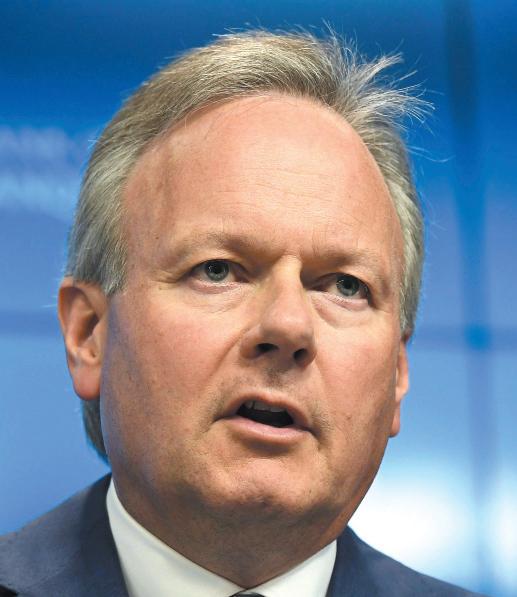
The central bank governor says digital disruption is just as much a factor in deciding monetary policy as inflation and the ongoing concerns around global trade uncertainty.
But he said new digital technologies, in particular, could be giving the economy more room to grow before inflation pressures really start to emerge. Poloz says raising interest rates too quickly could unnecessarily choke off economic growth.

while they were in New York this week for the United Nations General Assembly.
“No, we didn’t ask for a meeting this time around,” Trudeau said.
There was disagreement over whether Canada was making it harder on itself because of Trump’s personal disdain for Trudeau and Freeland.
Trump was publicly angered by comments Trudeau made at his closing G7 press conference in June, and has likely been offended by Freeland’s recent speeches that have defended the international institutions the U.S. president is regularly accused of undermining, said Cyndee Todgham Cherniak, an international trade lawyer.
“She has made negative comments towards the U.S. administration, which (Trump) takes to be him. I think he’s got a hate on for Canada right now,” said Todgham Cherniak, who is on Canada’s roster for settling disputes under NAFTA’s Chapter 19 – one of the unresolved sections of the current Canada-U.S. talks.
But any assessment Trump is closely following Freeland’s utterances is overblown, said Bessma Momani, an international affairs professor at the University of Waterloo and Balsillie School of International Affairs.
“If Fox News didn’t cover it, he didn’t hear it. That’s the end of it. I don’t think he’s got the bandwidth to listen to what Canada’s foreign minister has been saying about him in different places.”
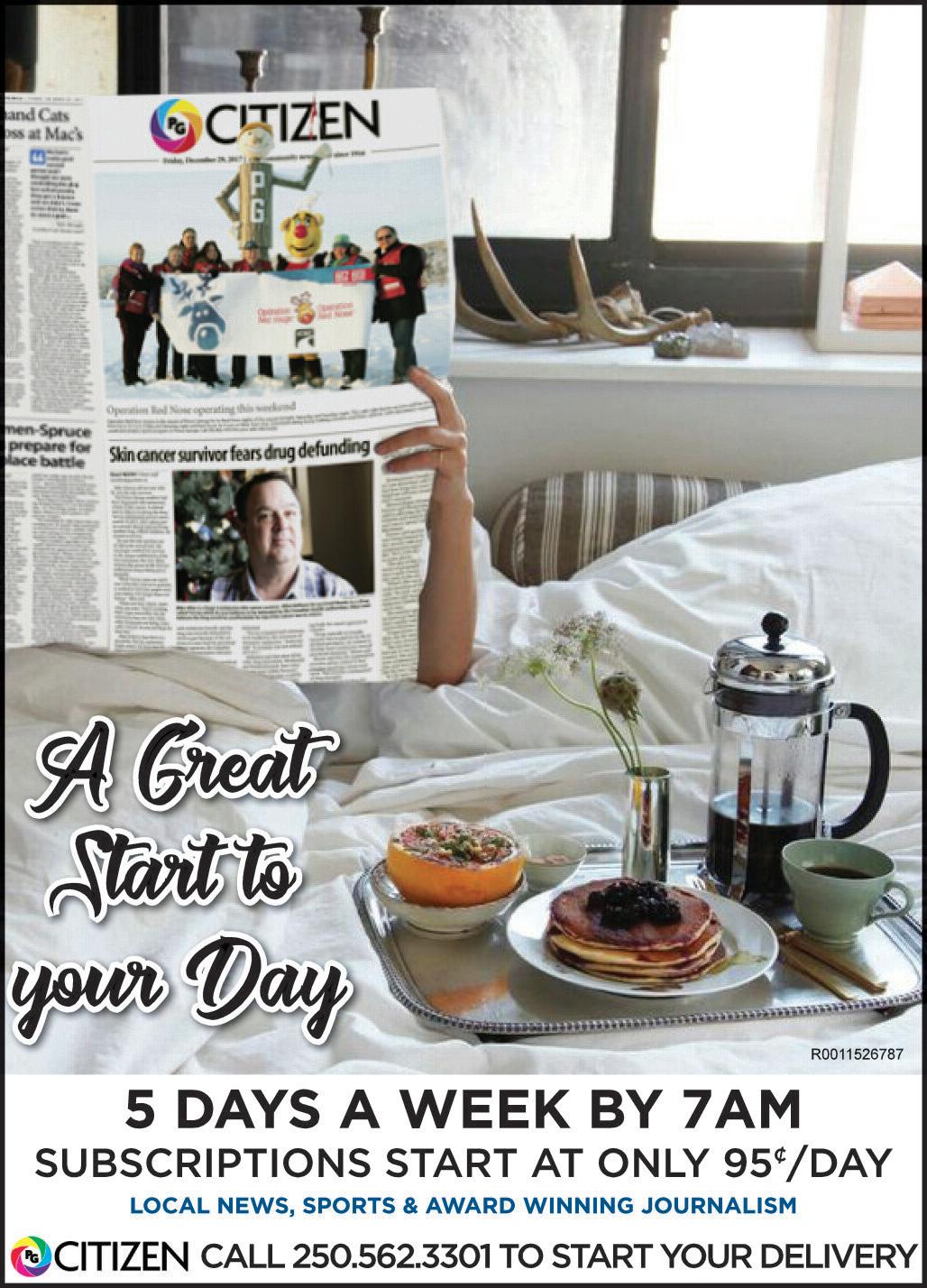


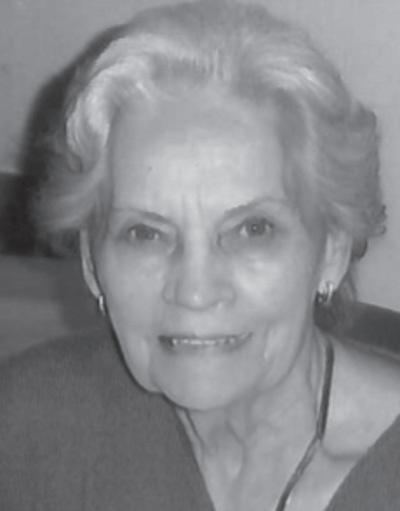
Irene Phyllis Doyle
It is with great sadness we announce that Irene Phyllis Doyle has passed away peacefully with family by her side on Tuesday, September 18, 2018 in Prince George, B.C. Irene was born in Eastend, Saskatchewan on April 1, 1927. She is predeceased by her husband Don, parents Frank and Winnifred Studer, daughter Pamela, son Gerry, and son-in-law Gord. She is survived by her children: Judy (Dan Gaboury), Meryl (Jari Rannankari), Dean (Tracy), Jani (Gord Olson) and her grandchildren: Kirk (Michelle), Don (Loralyn), Angela (Erwin), Daryl (Morgan), Jared (Nadine), Sean (Gisslenni), Hailey, Cody and 9 loved great grandchildren. She will forever be remembered for how loving, beautiful and caring of a person she was. Irene always opened her home to anyone that needed a place to stay whether it was just for a visit or until they got back up on their feet. Family was always the most important thing to her and wanted nothing more than being around them. Not only having her immediate family, Irene was considered a second Mom and Granny to many more with her warm heart and welcoming home. Her kind soul has truly touched our hearts and in our own way made us all feel special and will forever be loved and missed. A celebration of life to held at the Prince George Golf and Curling Club on Saturday September 29, 2018 from 1-3pm. Irene has requested that no one wear “gosh darn” Blue : )
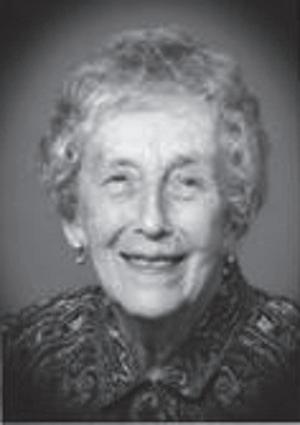
Margaret Beverly Long (Seely)
Aug 30, 1921 - Sept 16, 2018
Our dear mother, grandmother, and greatgrandmother died peacefully at Jubilee Lodge in the loving care of family and staff. Margaret was born in Quesnel but grew up in North Vancouver, where she obtained her ARCT piano teaching degree at age 17. In 1940 she obtained her Normal School qualifications and took a teaching position in Palling, BC, near Burns Lake. She met her future husband, Arthur Long, who then enlisted and served in the BC Dragoons, a tank corps that saw action through Italy and Holland until 1945. Margaret wrote Art daily for five years. They were married January 26, 1946 and returned to Palling, where they started a small logging and sawmilling business. The city girl became camp cook for the crew and mother to three sons. When the boys became school age, the family settled in Palling, where Margaret began her career as a piano teacher, which continued until she was 80. In the following years she was a founding and executive member of the Lakes District Festival Association. Her music touched many generations of local people through accompaniment for church services, weddings, funerals, dances, concerts, and summer camps. She taught elementary school mostly as a District Music Specialist in Burns Lake and Houston, spreading her joy of music to a wide audience. She also taught swimming lessons to many children in Palling and at Mollice Lake Camp. She and Art were avid travelers, with a special love for Africa. Following Art’s death in 1985, she lived in Burns Lake and later moved to Prince George to be nearer to her family. She is survived by: three sons; Sandy (Roberta), Gordon (Linda), and Jamie (Beverly); six grandchildren; and ten great-grandchildren, all of whom considered Gramma Margaret the family Matriarch, Mistress of Limericks, and ultimate arbiter of all things musical. A memorial service will be held in Prince George at Trinity United Church, 3555 5th Avenue on Saturday, October 6 at 2:00 PM. Interment of her ashes in Burns Lake will take place next year.
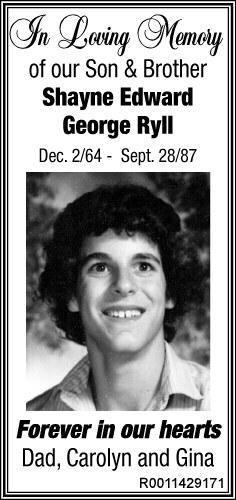
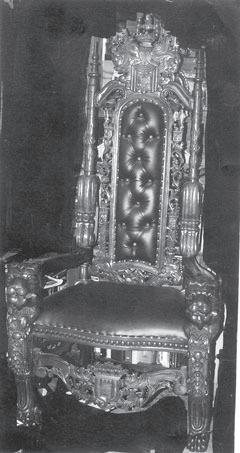

Lawrence Marsolais
October 22, 1928 to September 14, 2018
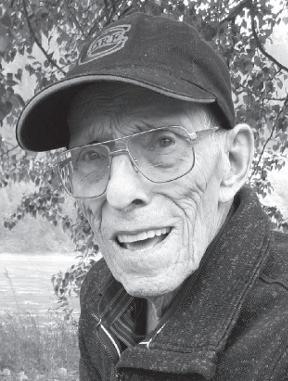
It is with great sadness that we say goodbye to a Husband, Father, Grandfather, Great Grandfather and friend. Lawrence is now back in the loving arms of his wife, Hilda who left us in January of 2013. Survived by daughters, Cheryl and Eva; son, Art (Gretchen); grandchildren, Lecia (Tony), Opal, Lance, Mitchell; and great grandchildren: Cianna, Ivy, Payton, Gunner and Ryken as well as extended family and friends. Lawrence was the brother to Christine Thevenot, Simone Ray, Lucien Marsolais, Roseanne Peters, Connie Ducharme, Andre Marsolais. Predeceased by parents, Arthur and Celina Marsolais; brothers Tony Marsolais, Jacque Marsolais, Guy Marsolais, Martin Marsolais and sisters, Clare Fontaine, Jeanne Lloyd. In lieu of flowers, donations to the Rotary Hospice House, 3089 Clapperton Street, Prince George, BC V2L 5N4 or a charity of your choice would be appreciated.
A special thank you to Dr. Attia and Dr. Geddes for their wonderful care of Lawrence. Kristi and Julie, you put a smile on his face daily, he was so lucky to have you both in his life. To celebrate Lawrence’s life the family would like to invite you to join us for a tea at the Hart Pioneer Centre (6986 Hart Hwy) on Sunday, October 14th, 2018 from 2 pm to 4 pm.

It is with great sadness that we say goodbye to a sweet lady, Marie Magdalena Primus (nee Merkosky) June 14, 1928 to Sept. 22, 2018 She has peacefully moved on to her eternal home. Sweet Marie will be joyfully greeted by her husband Ben, her parents (Joseph & Elizabeth Merkosky), in-laws (Frank & Anna Primus), her brothers (John, Ollie, Mike, Jake, Leo, Nick, Pete, Alex & Joey), her son-inlaw, David Ceaser and grandson, Shawn Bailie; when she reaches those pearly gates.”What a time they will have over there.”Marie & Ben moved from Leroy, Saskatchewan to Prince George in 1965. Marie sold Avon, then Nutri-Metics and worked at Woodwards for many years. They moved to Vernon in 1980 and resided there until they returned to Prince George in 2007. Marie was a resident at Parkside Care Home since 2016. Her children; Larry (Georgia), Doug (Sharon), Joan, Allan (Martha), Rick, Dale (Chris), Frank, Romay (Lynn), Greg (Bev), Diane (Werner), Corey, Beth (Dale), her grandchildren, great grandchildren and great, great grandchildren, her sister, Cecelia Taphorn and uncountable numbers of nieces, nephews and friends, will certainly miss this beautiful soul. A Memorial Service will be held for Marie at the Prince George Funeral Chapel, 1014 Douglas Street, on Saturday, October 6th at 2:00 p.m.
Established Franchise Photography Business Serving Northern B.C for over 35 years
Gross Revenues of $150.000 plus annually from seasonal work Lots of opportunity to expand the business. Transition support available to the right buyer Serious Enquiries Only Office 250-596-9199 Cell 250-981-1472
BUSINESS OPPORTUNITY
Established Franchise Tax Preparation BusinessMackenzieservicing and McLeod Lake area for over 30 years.
Gross Revenues of $85,000 to $90,000 Annually and Potential to expand revenues in a growing economy.
Transition support available for the right buyer.
Serious Inquires Only Office (250)997-9003 Home (250)997-5538 Cell (250)990-0152 BUSINESS OPPORTUNITY
